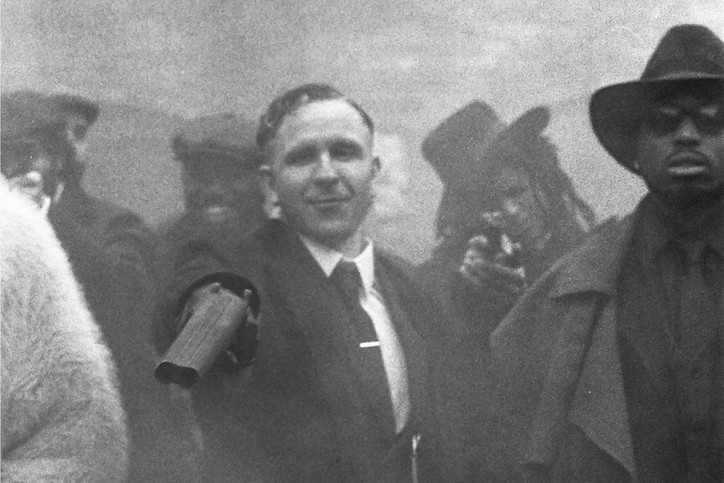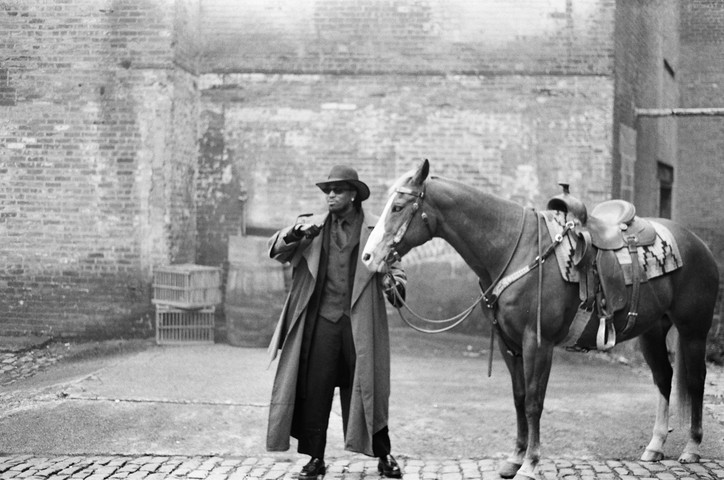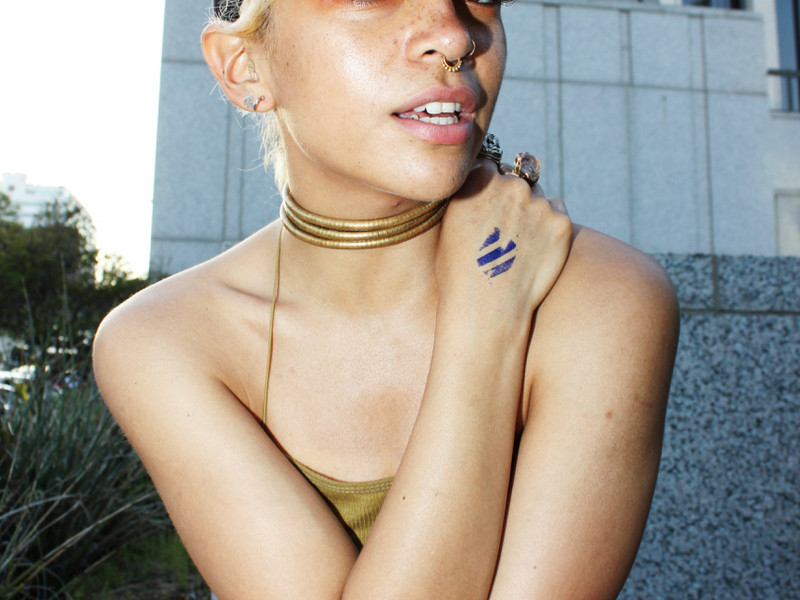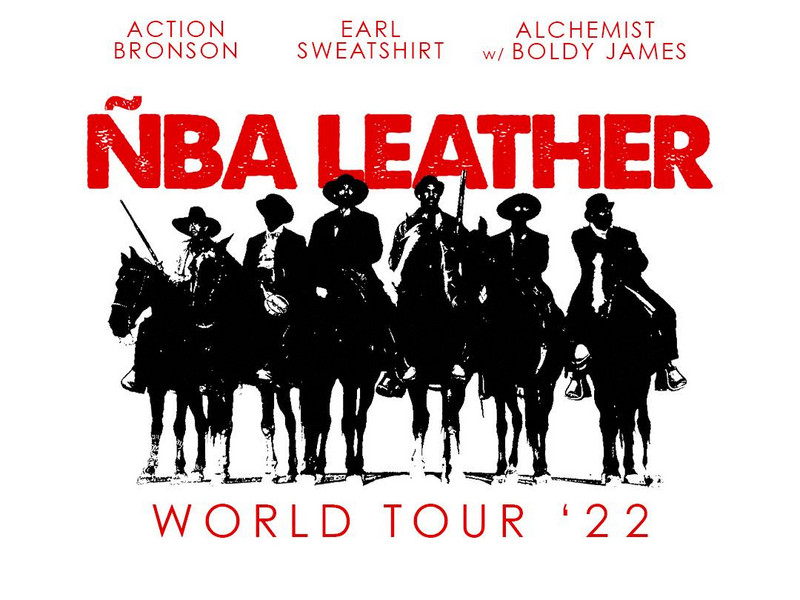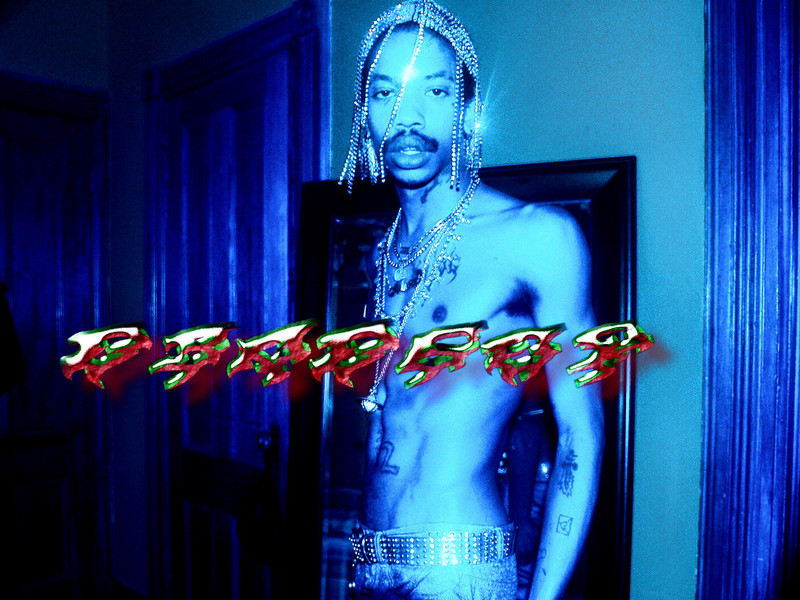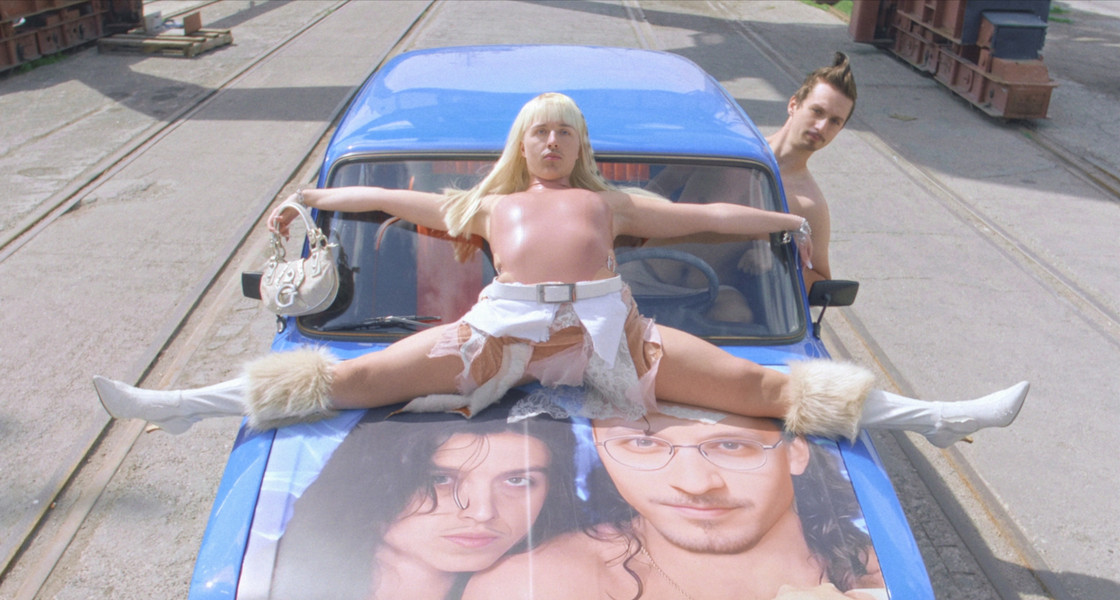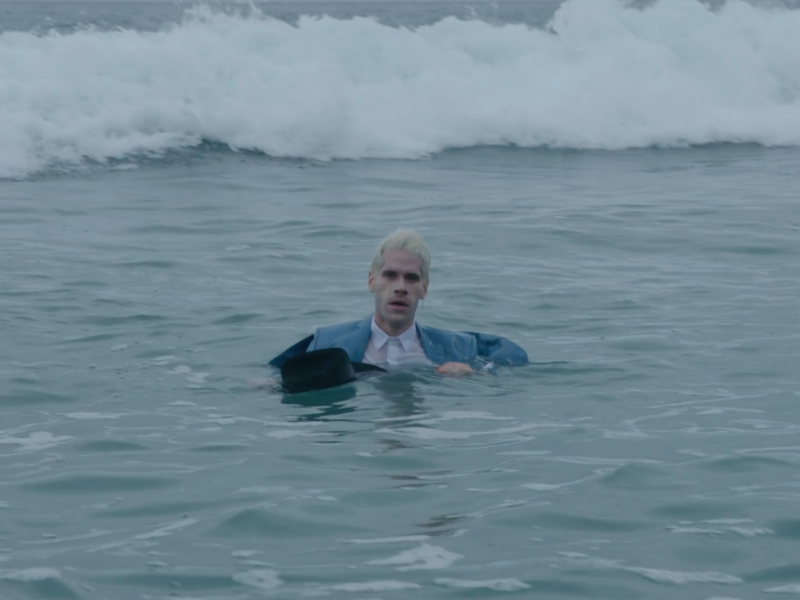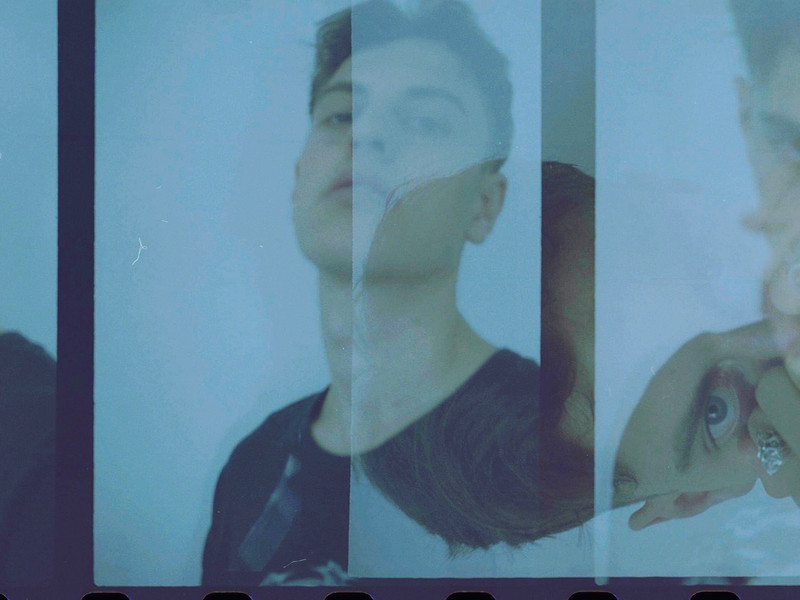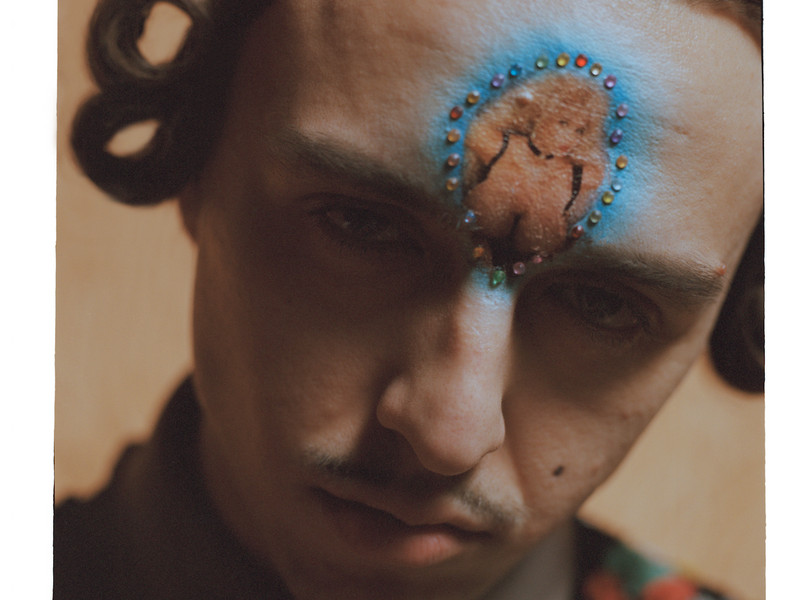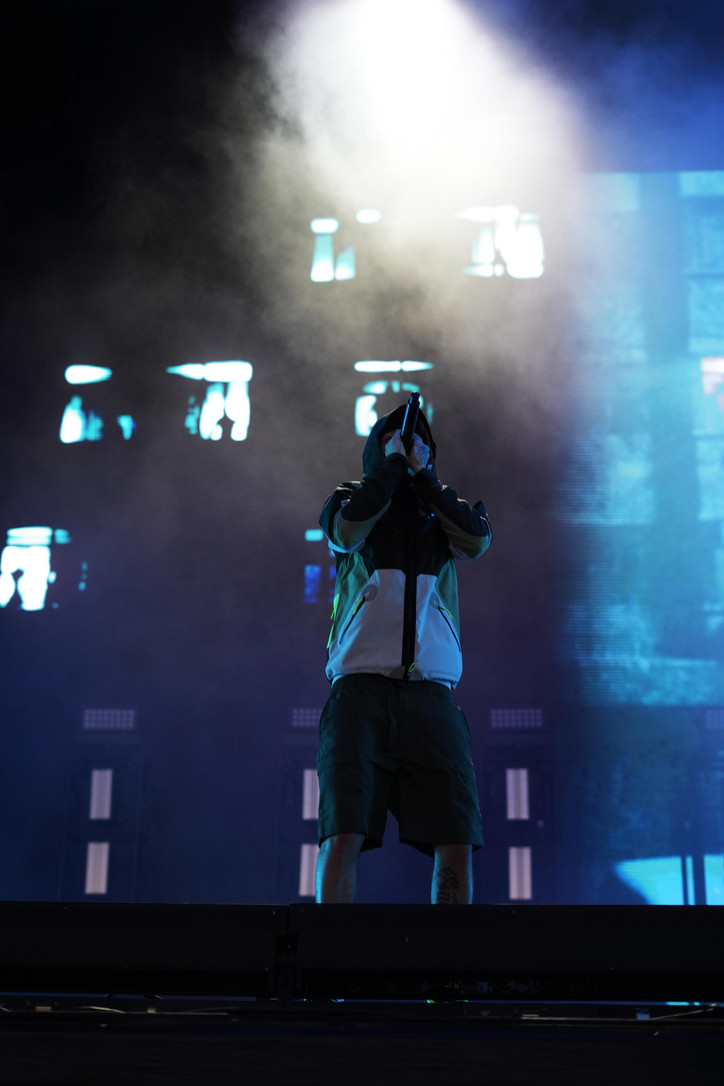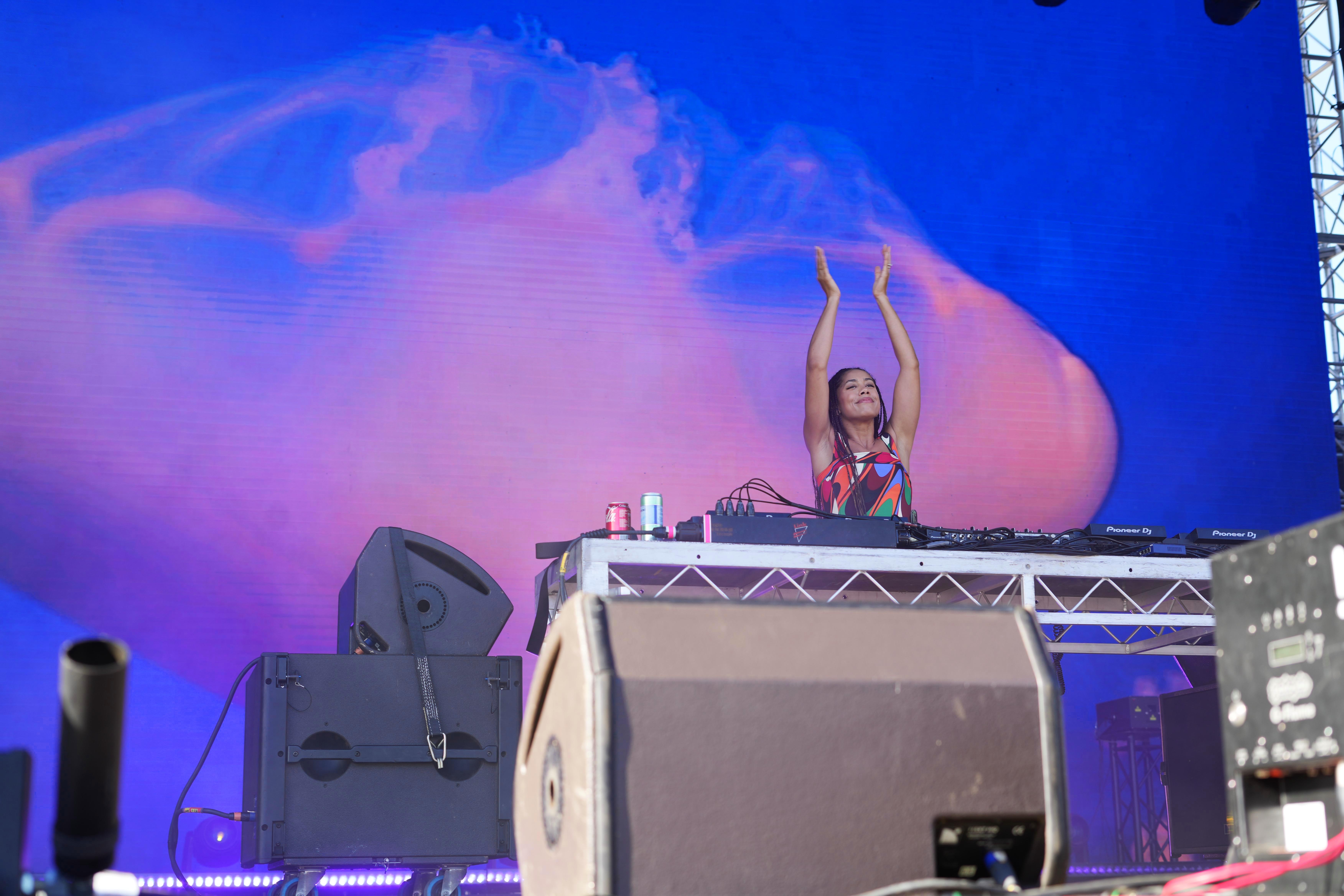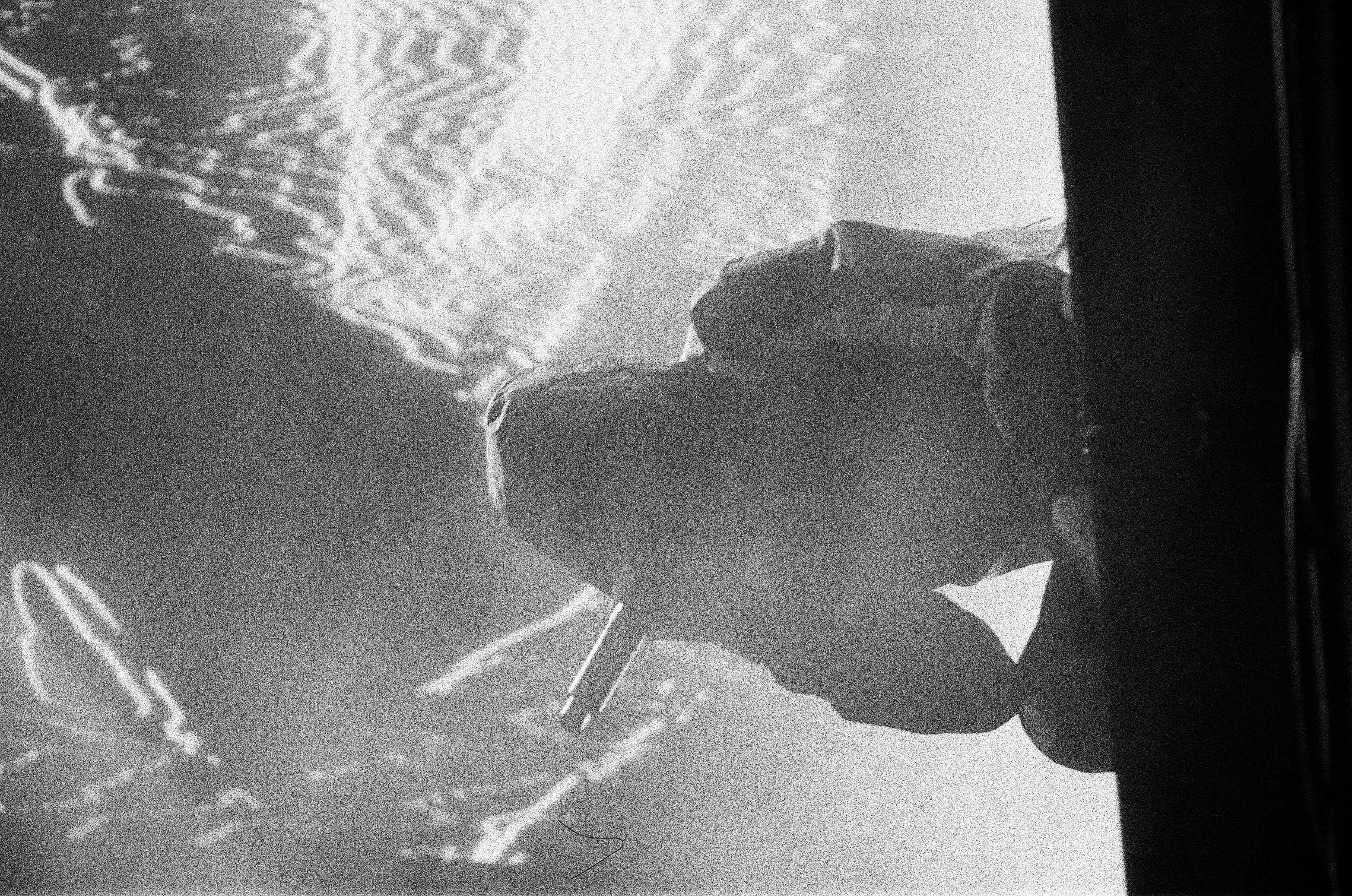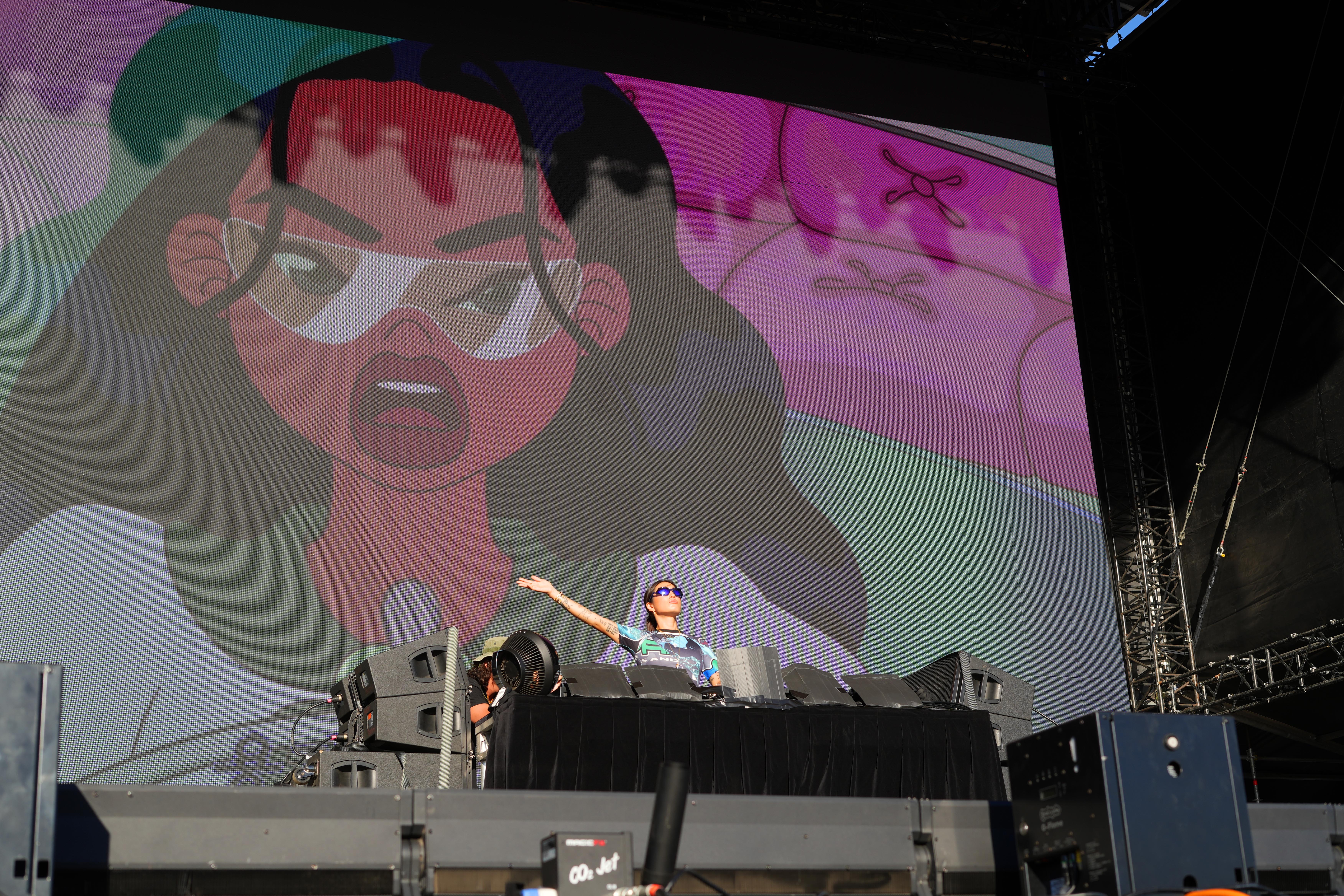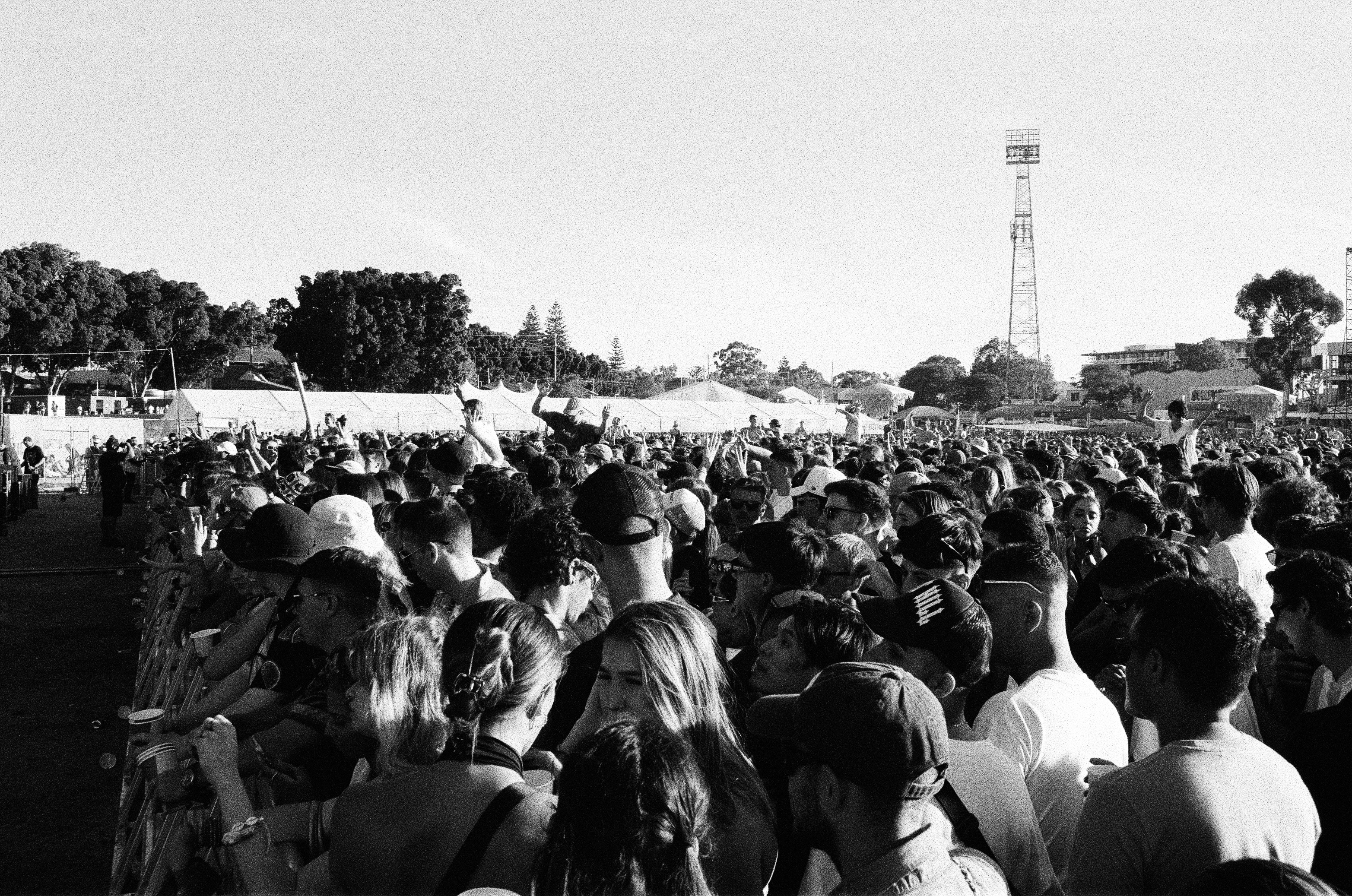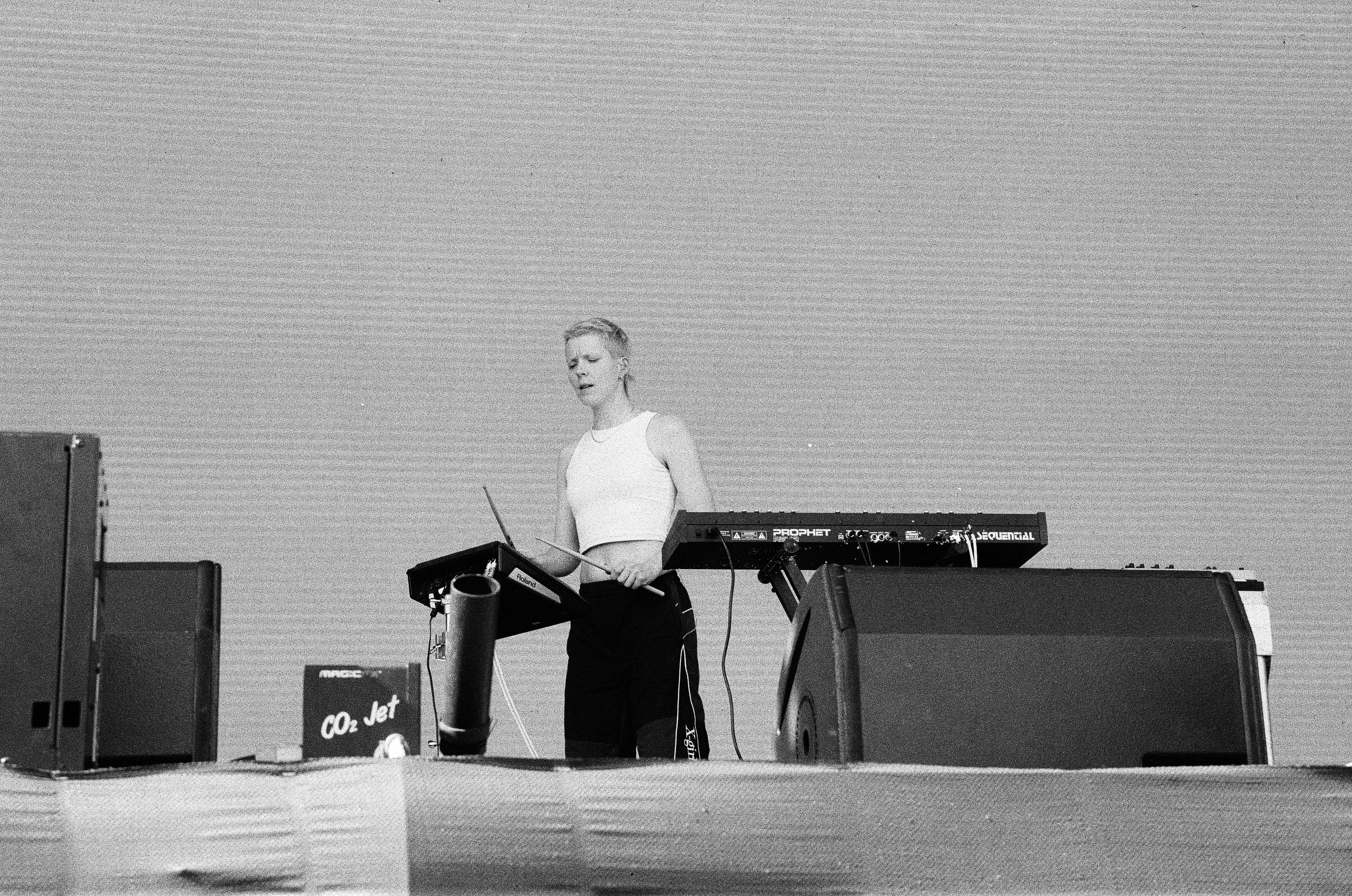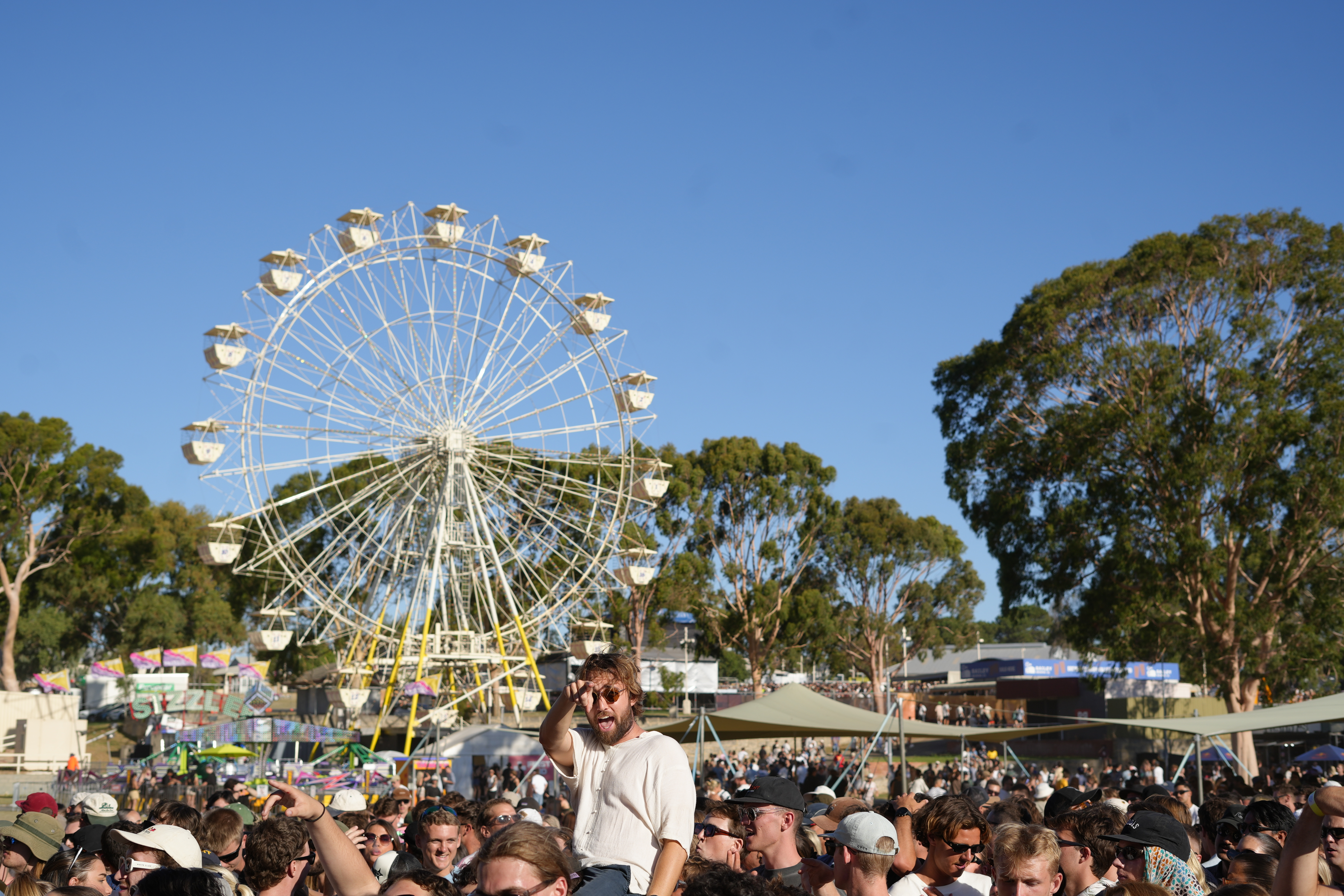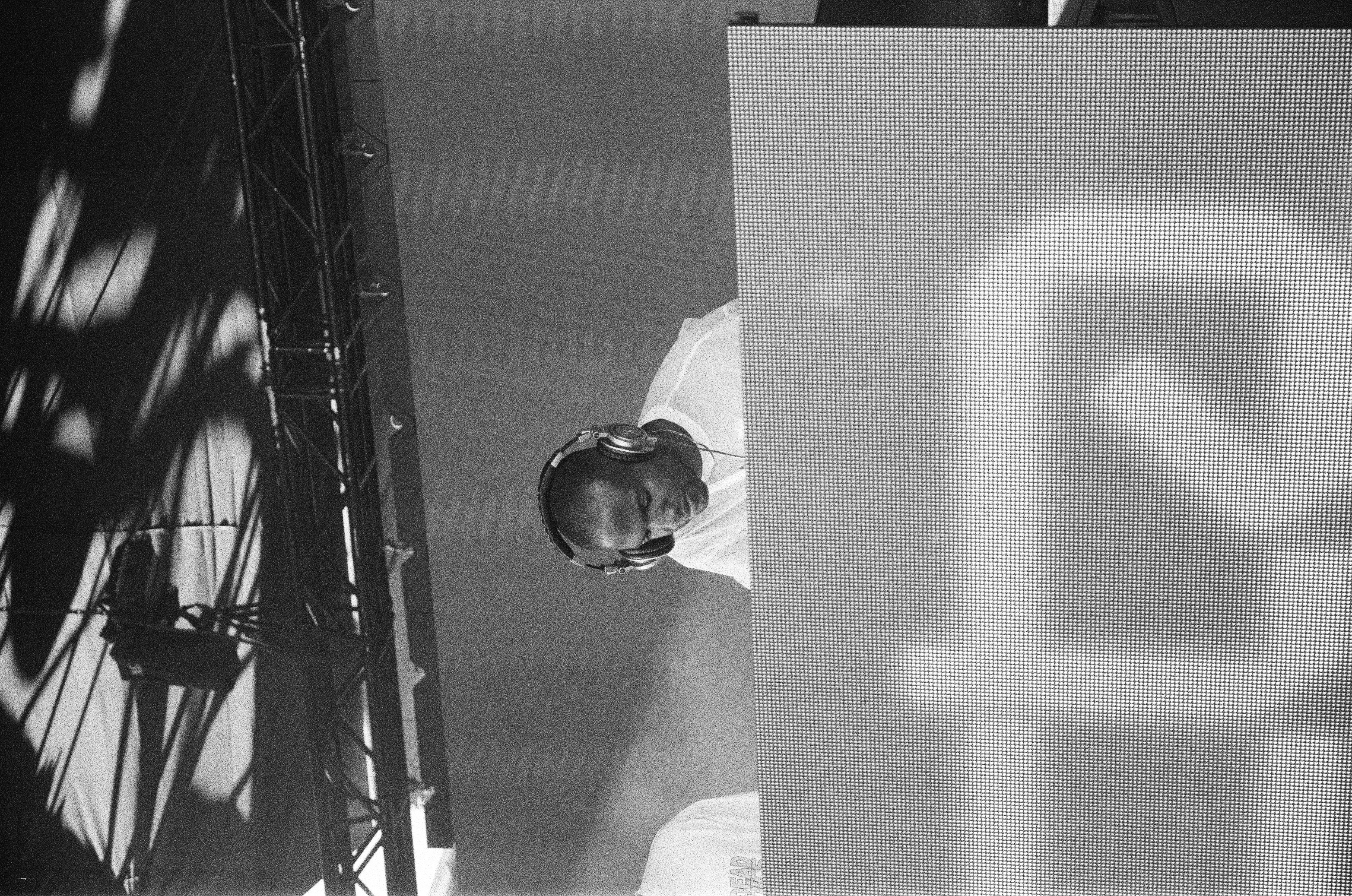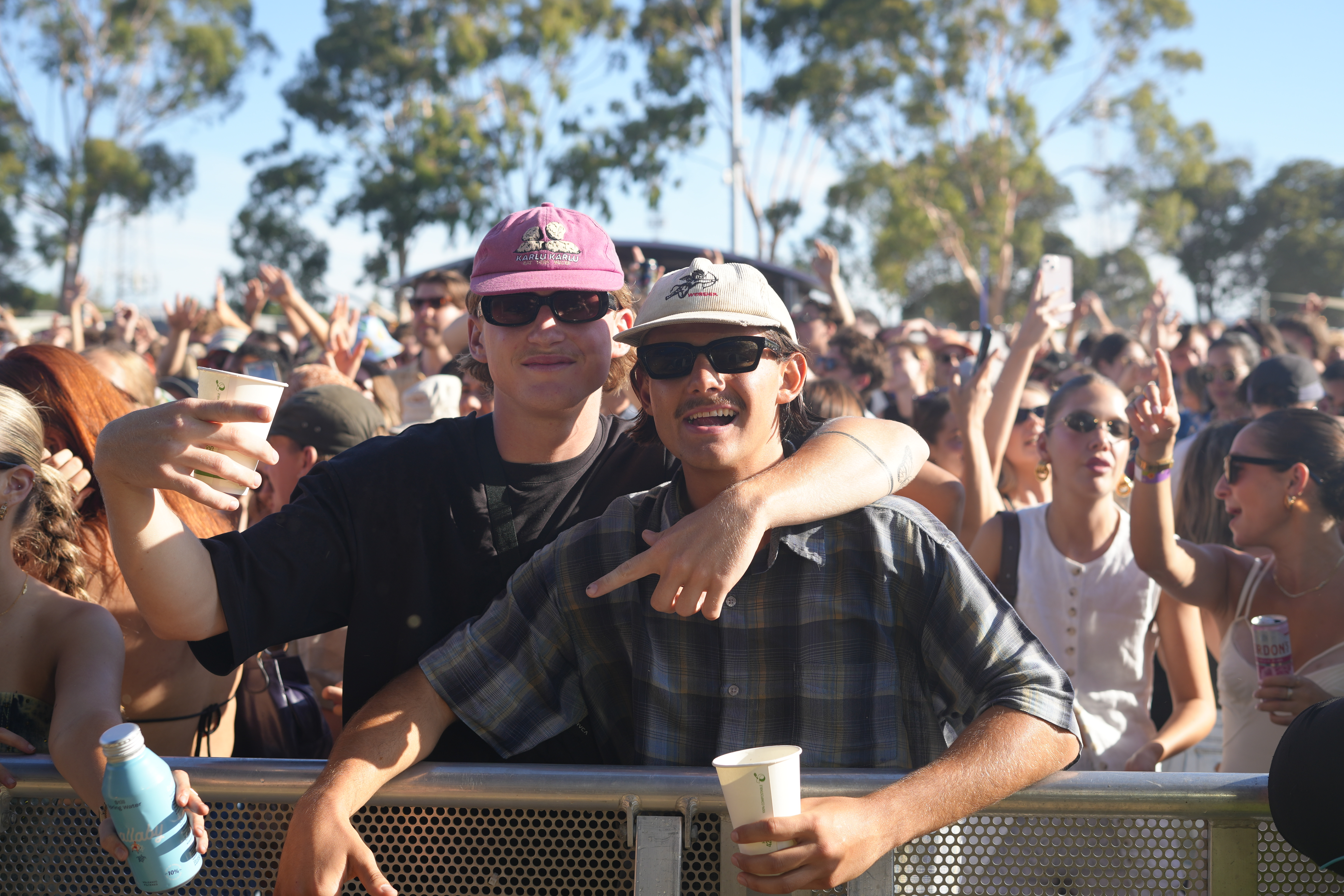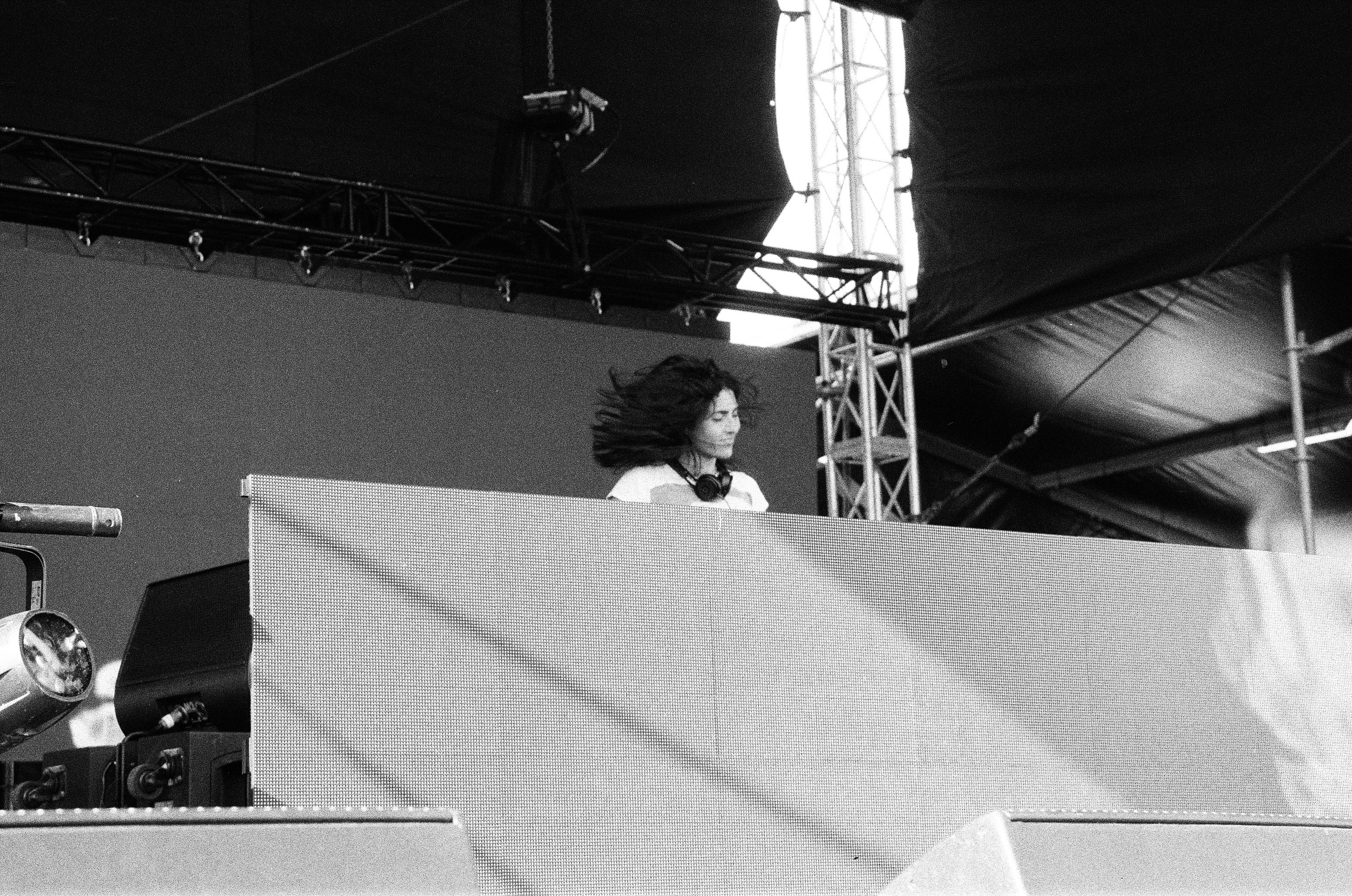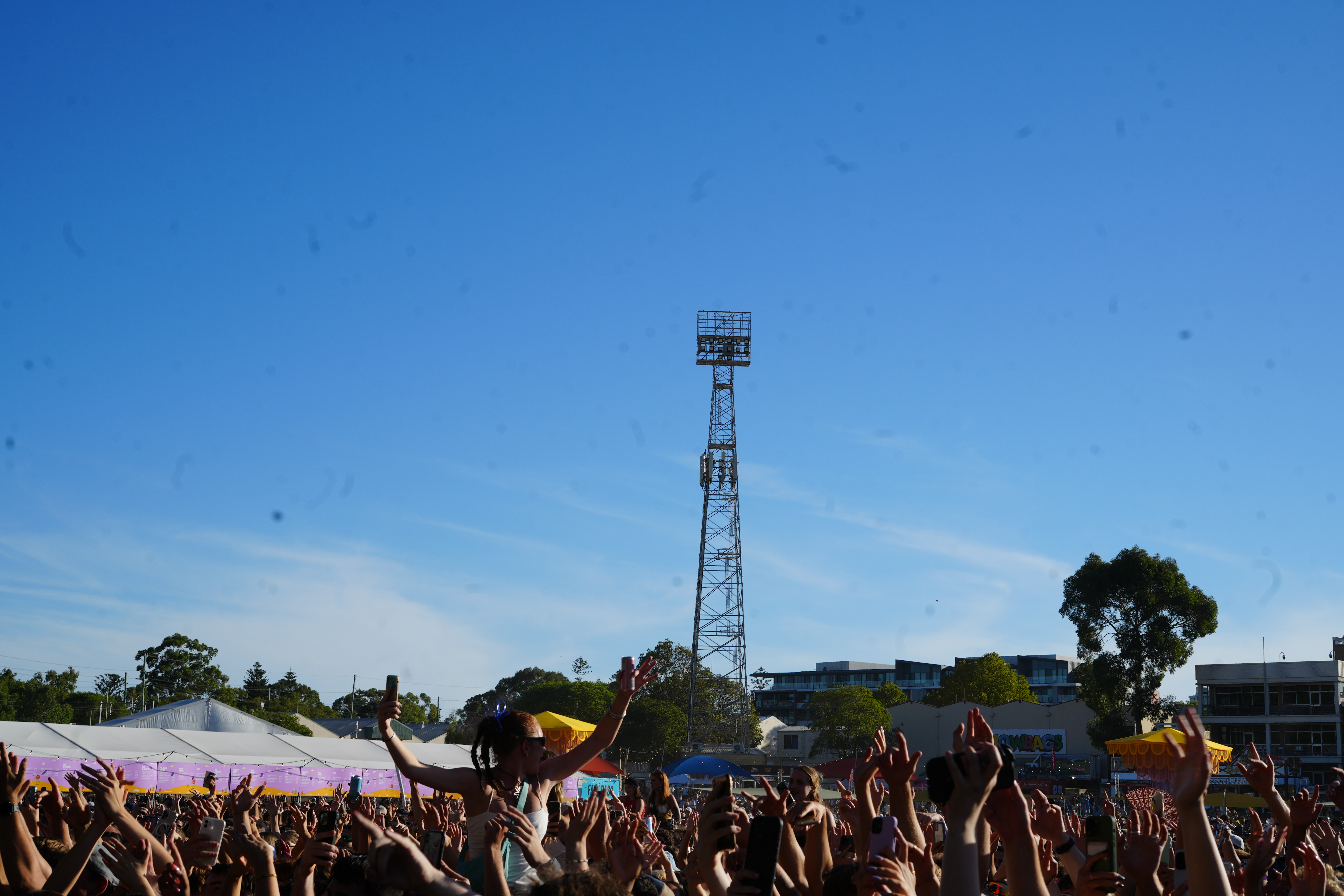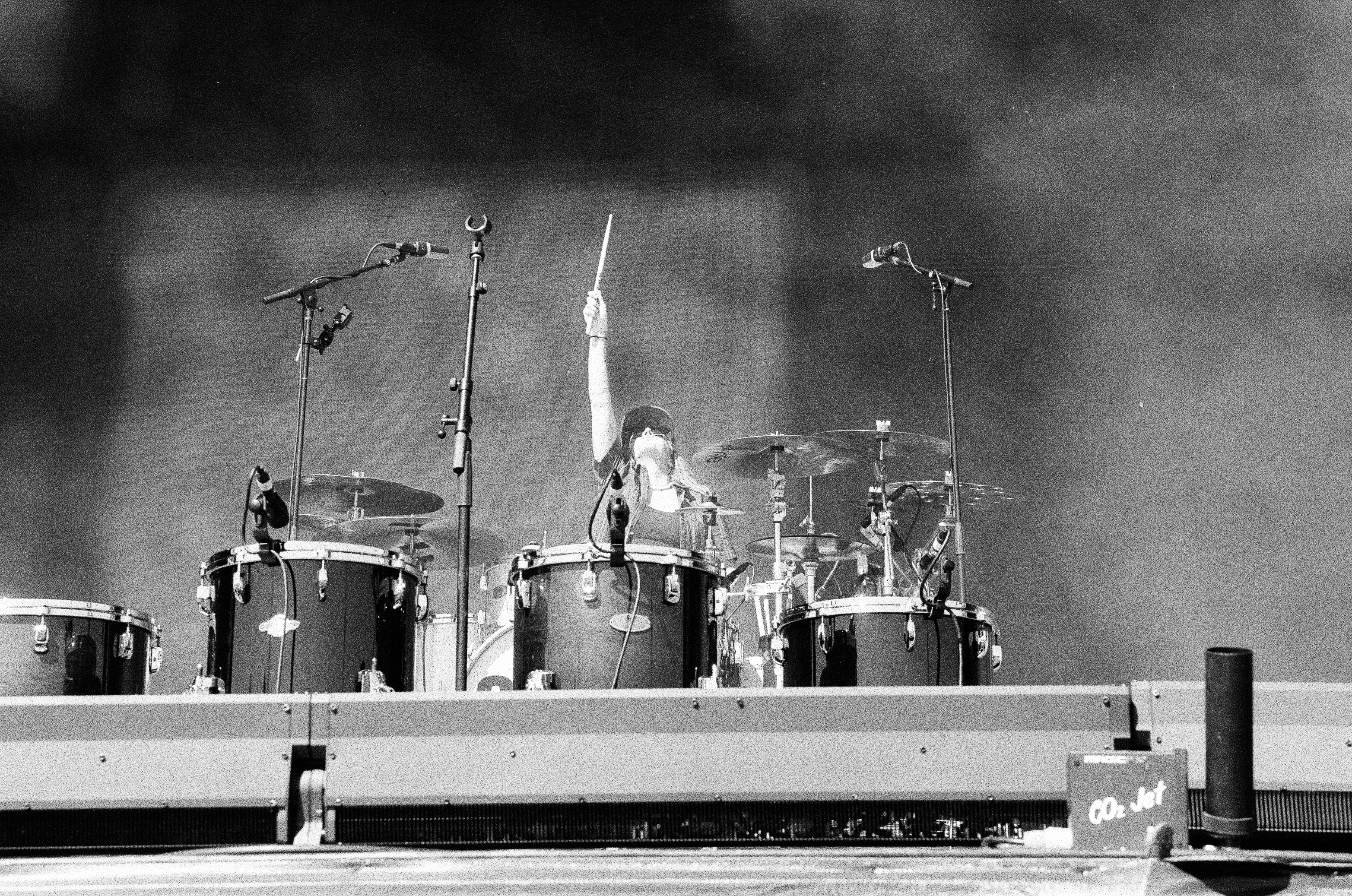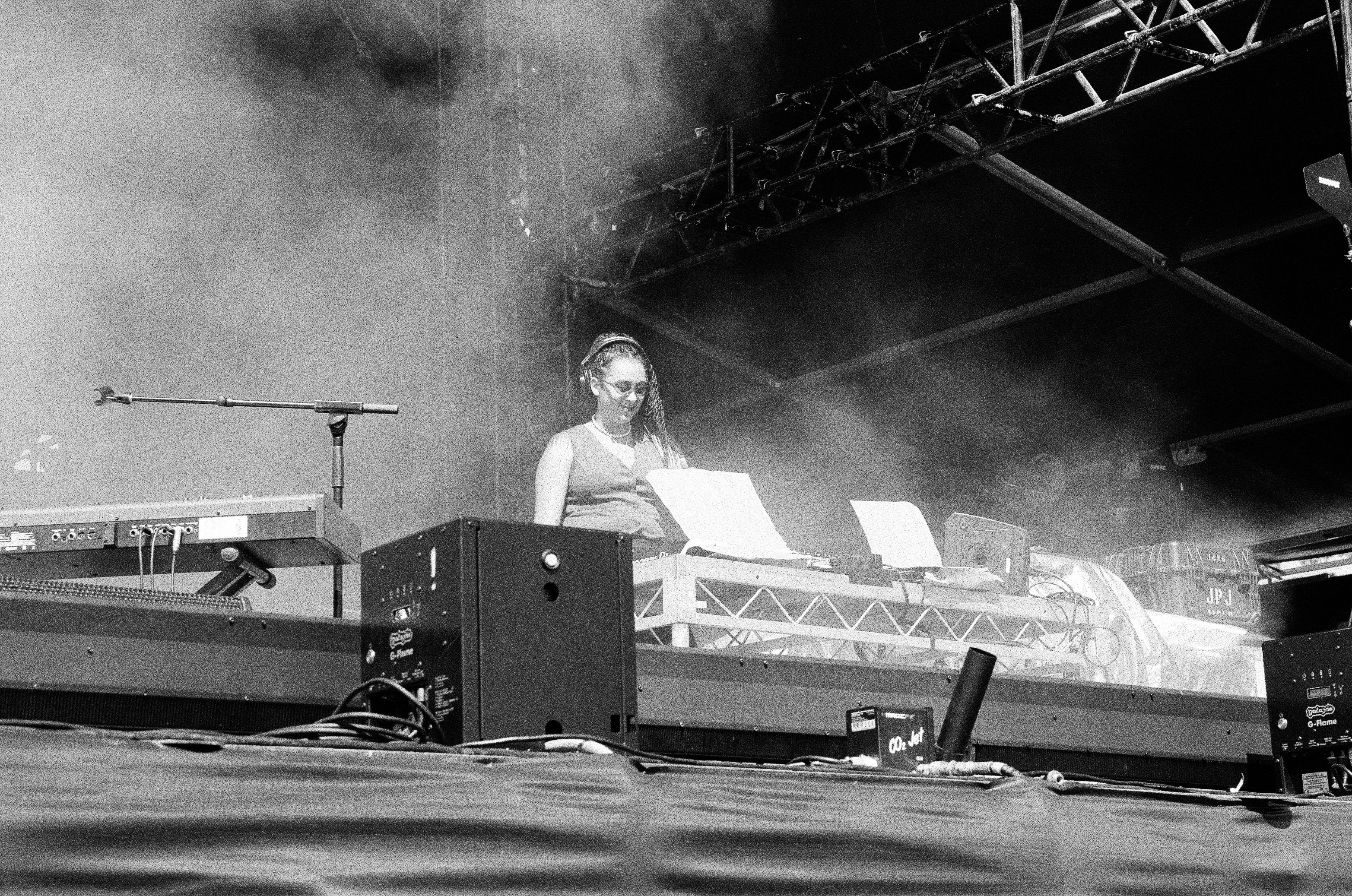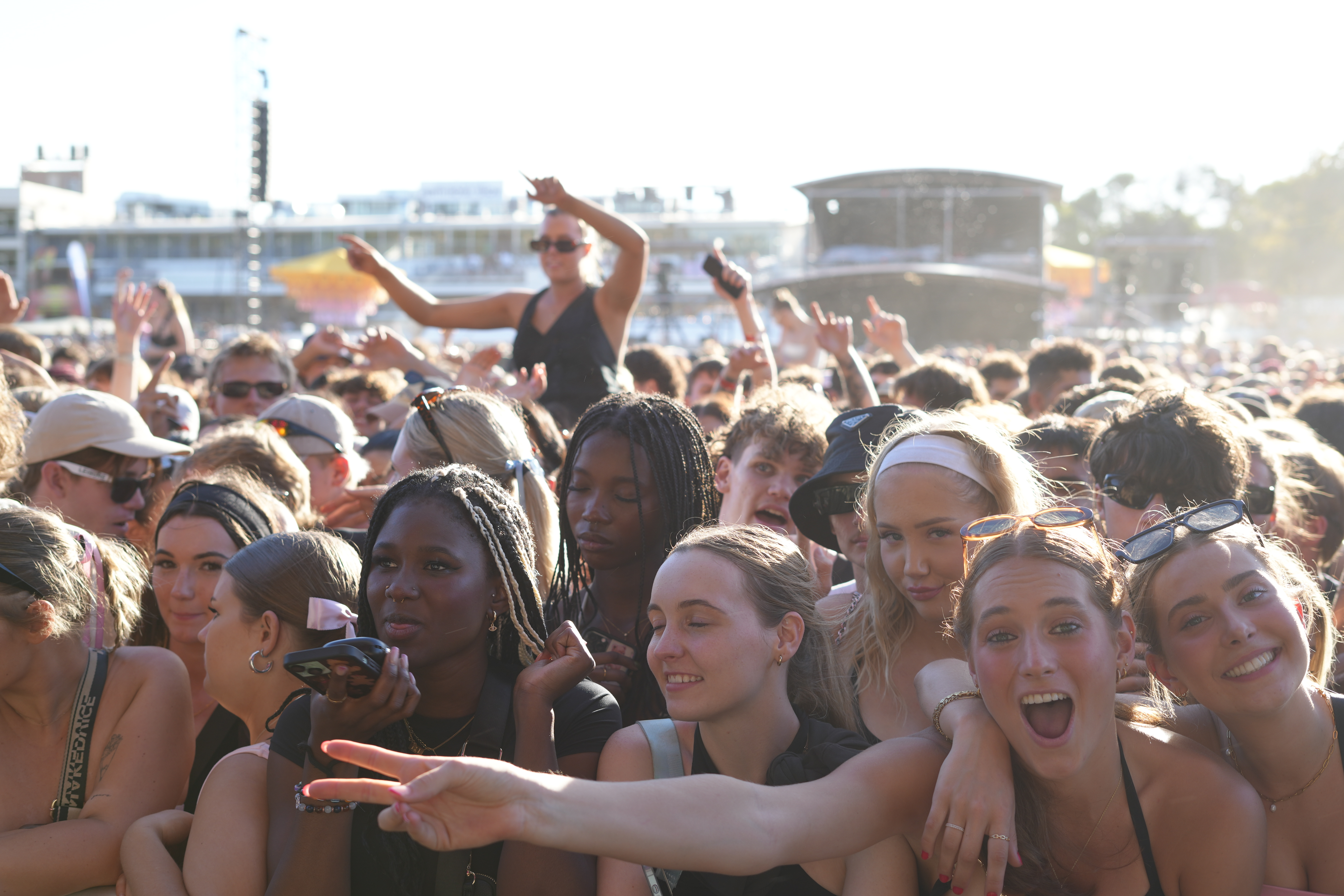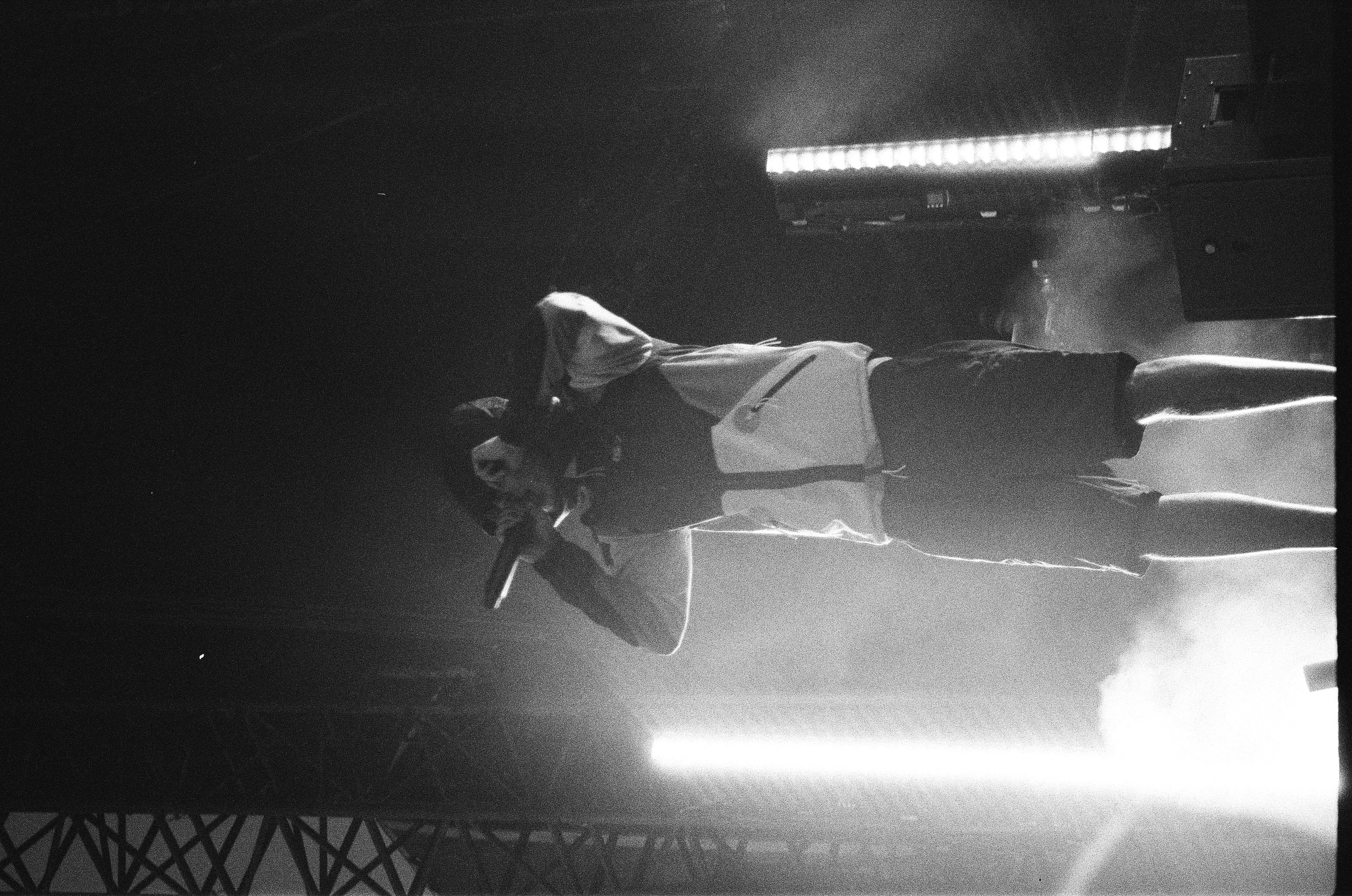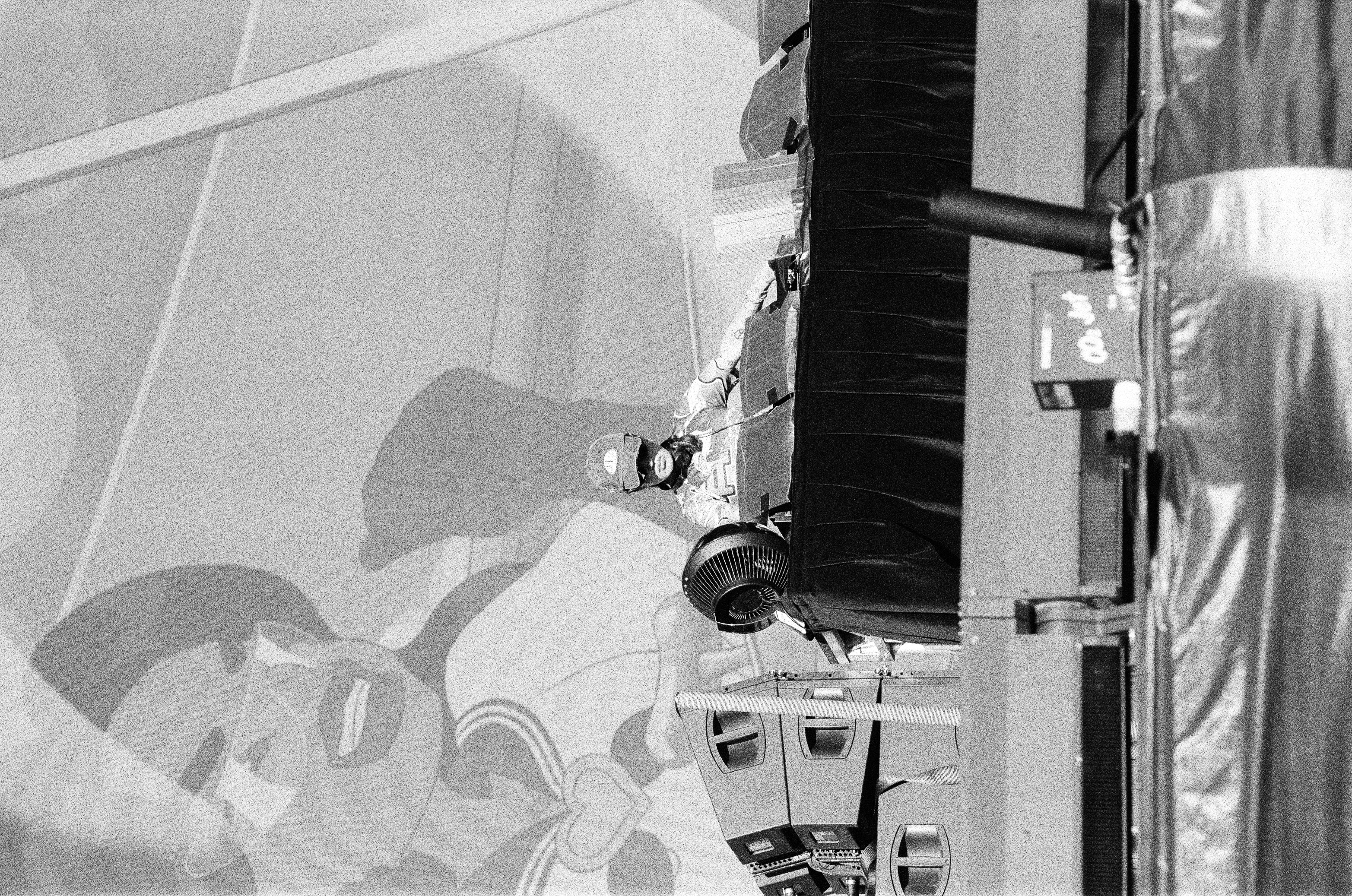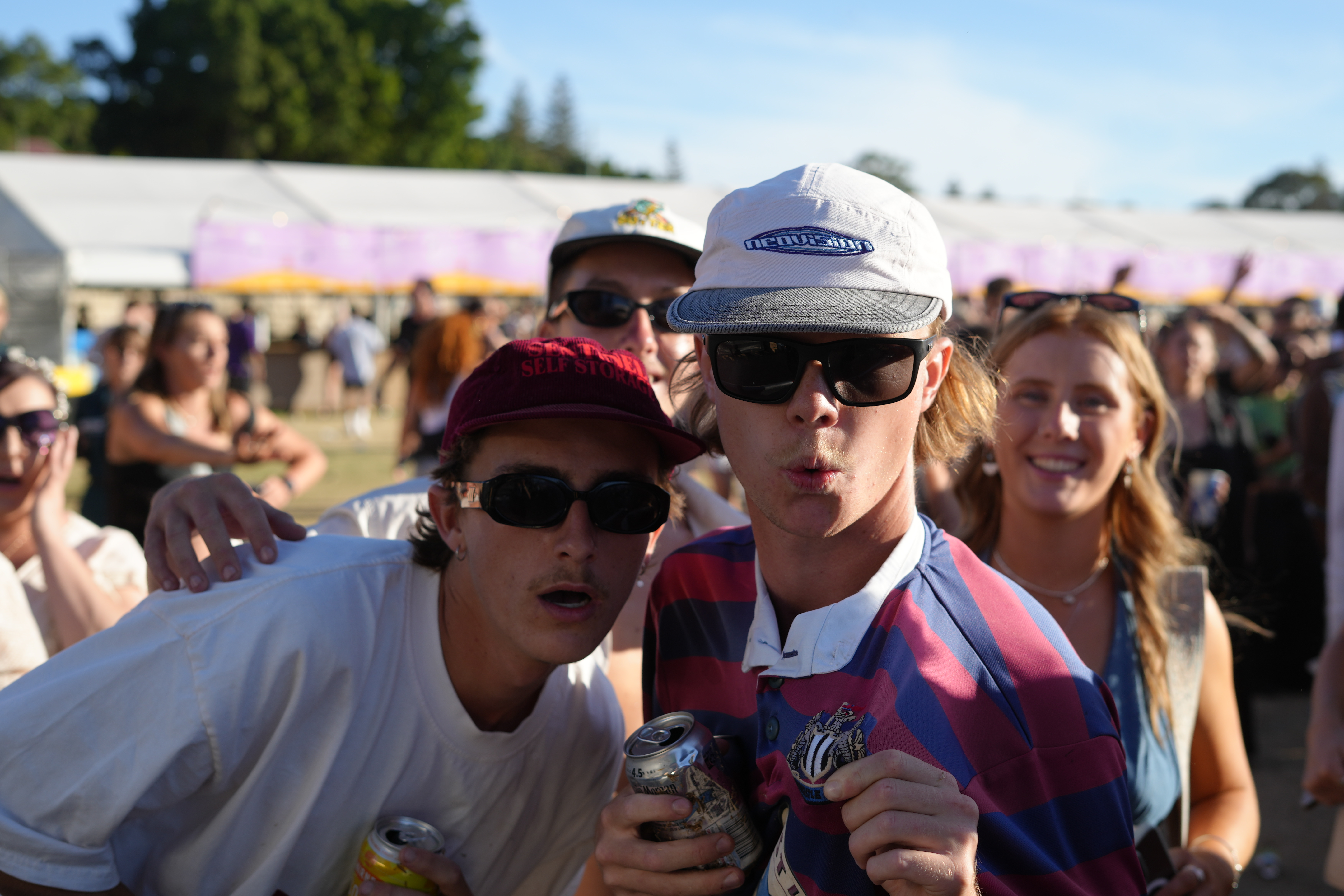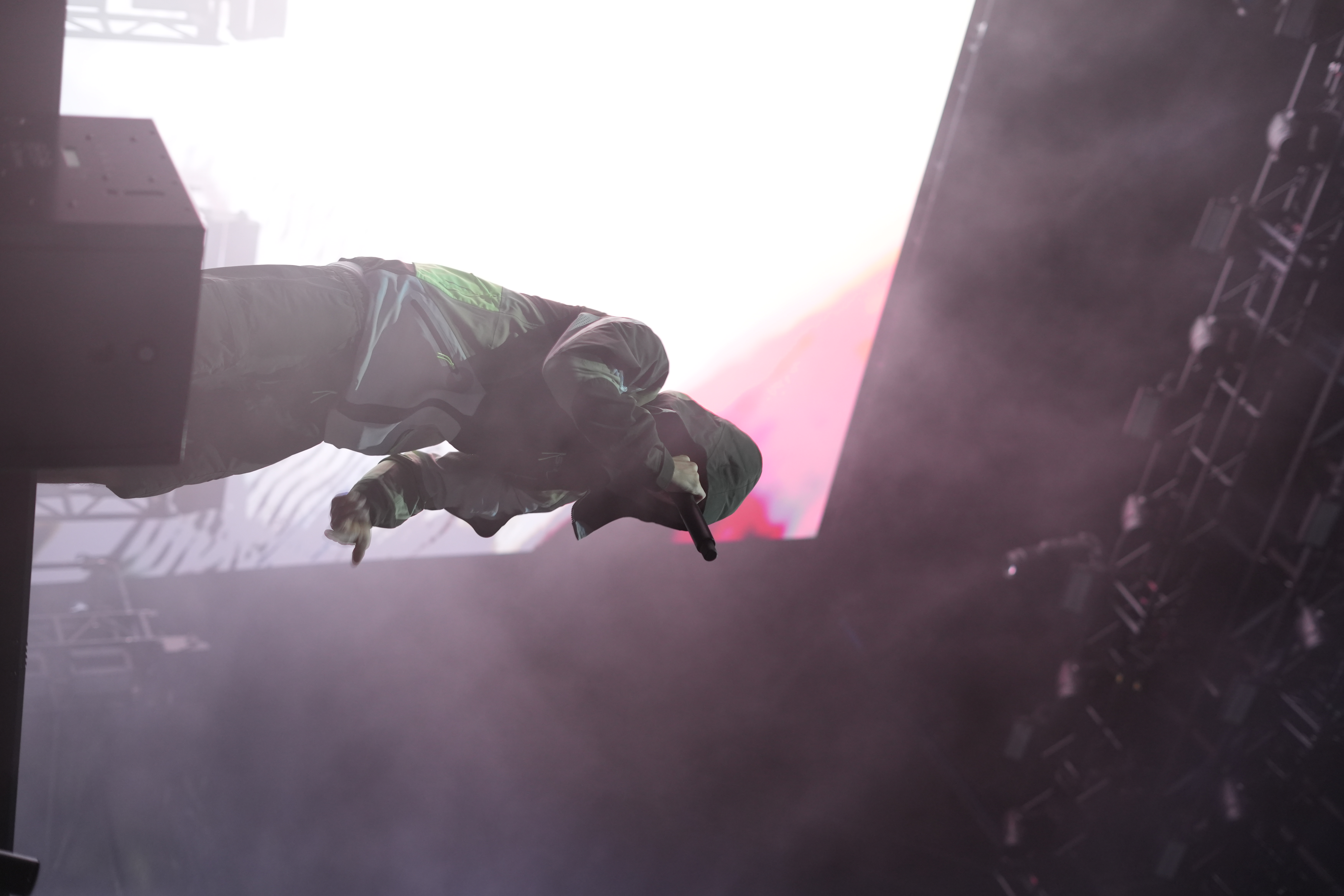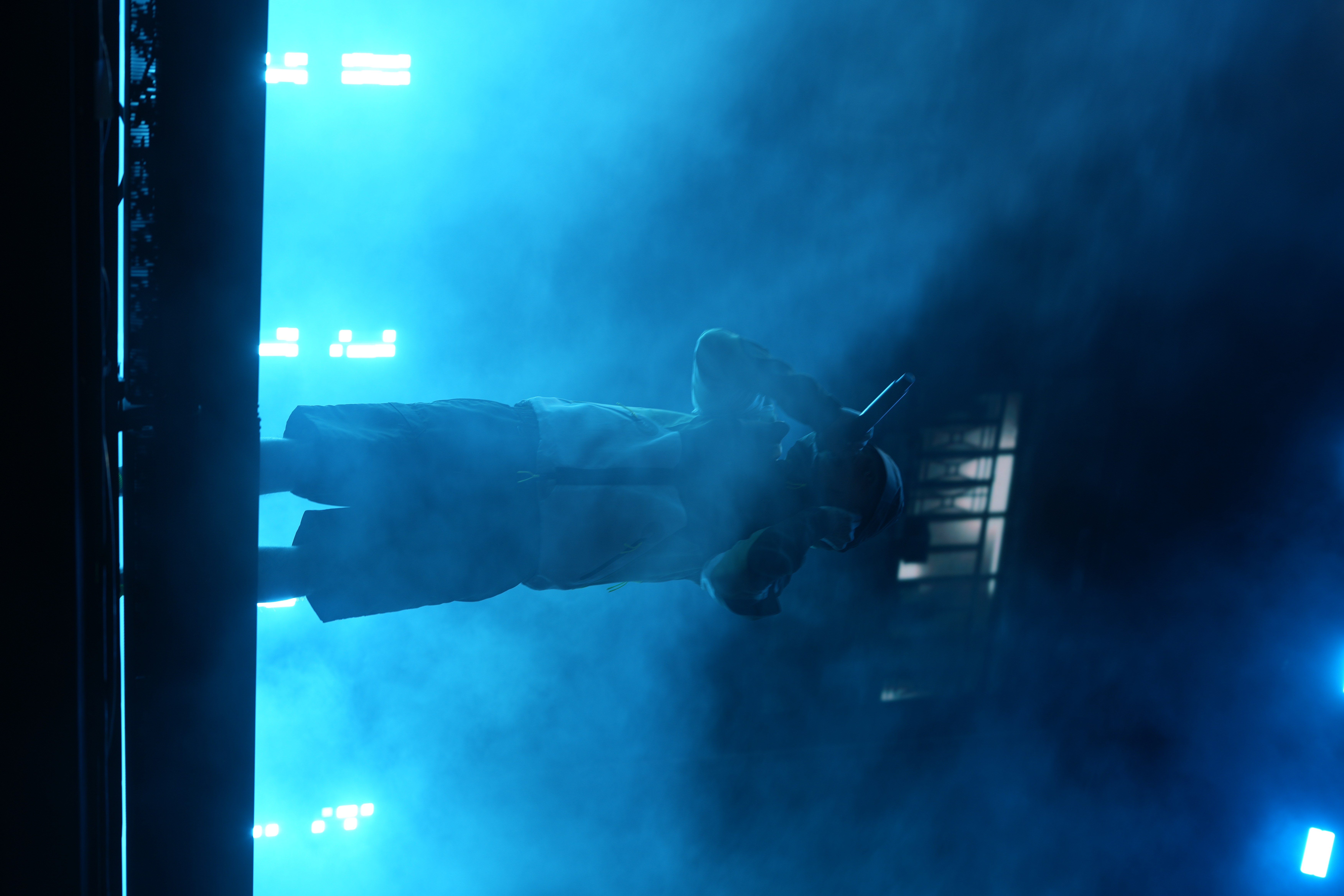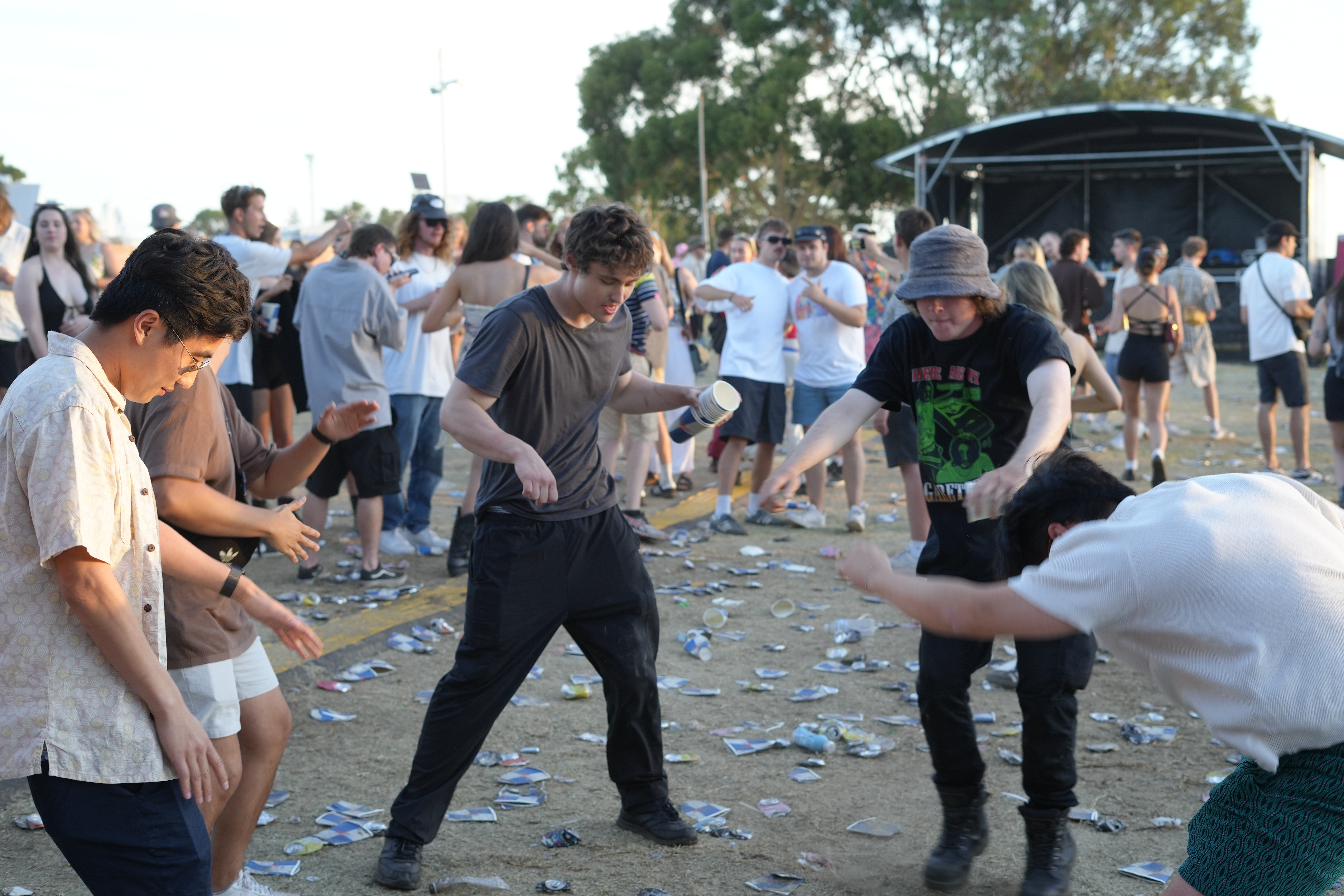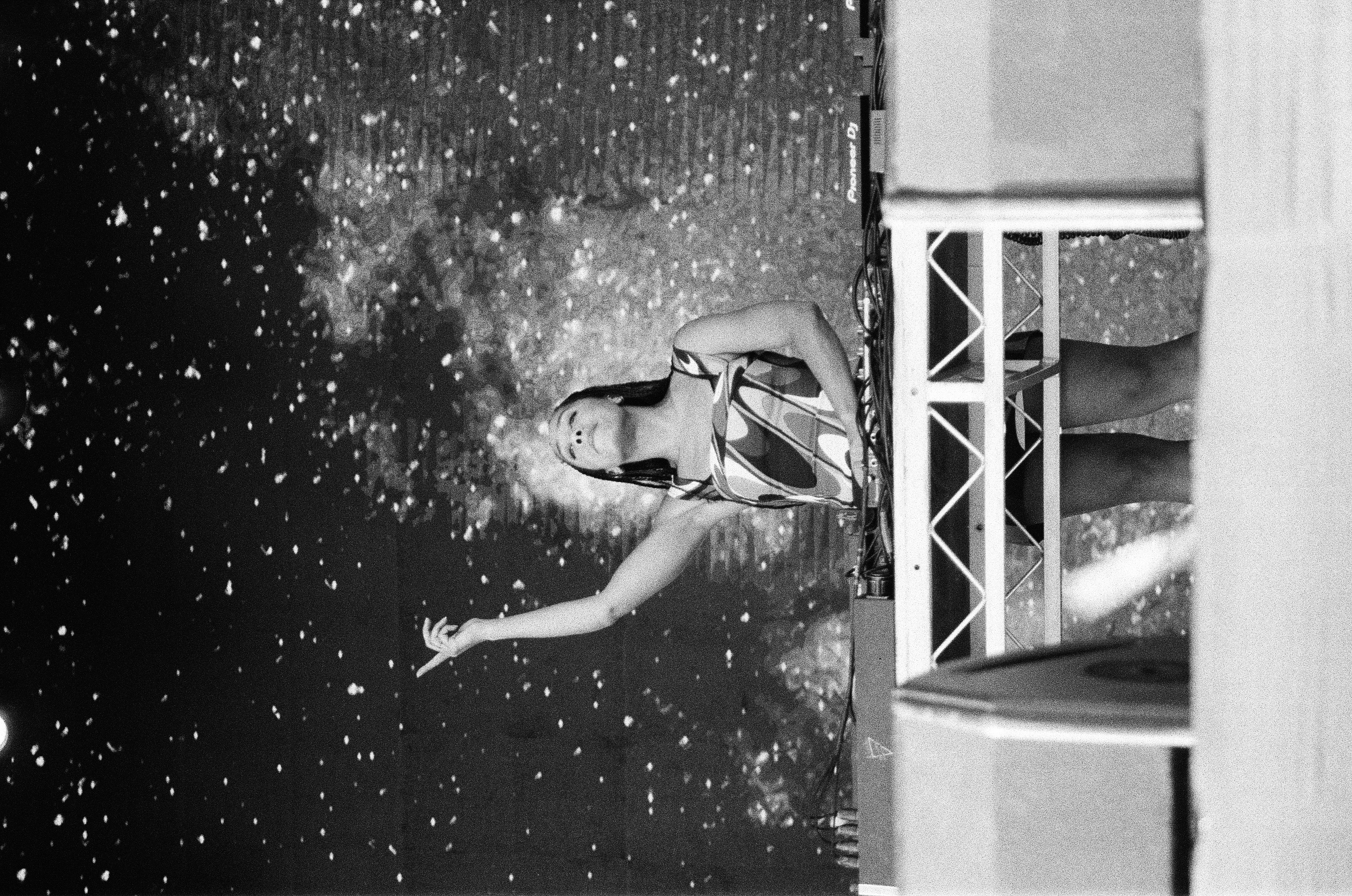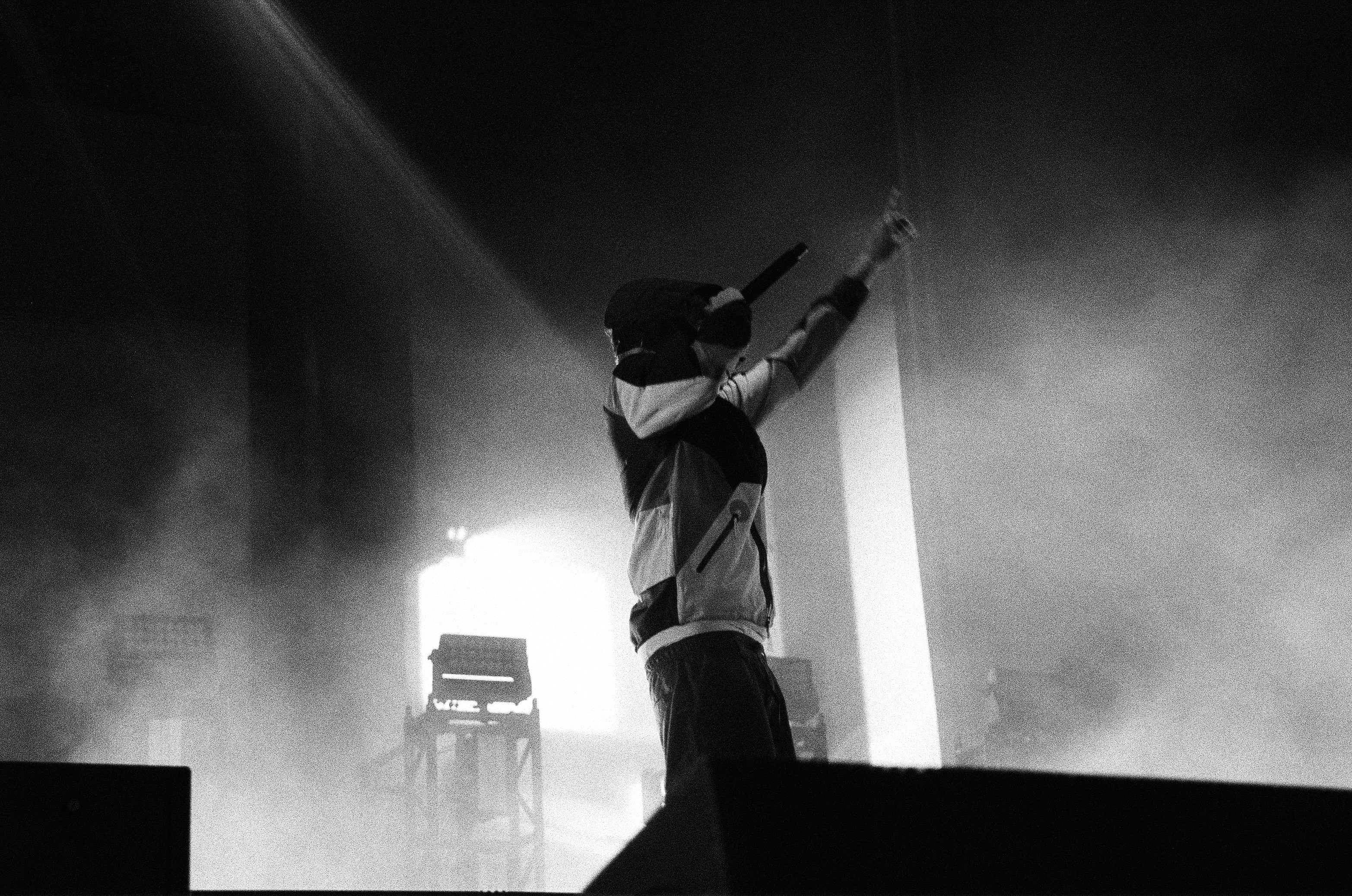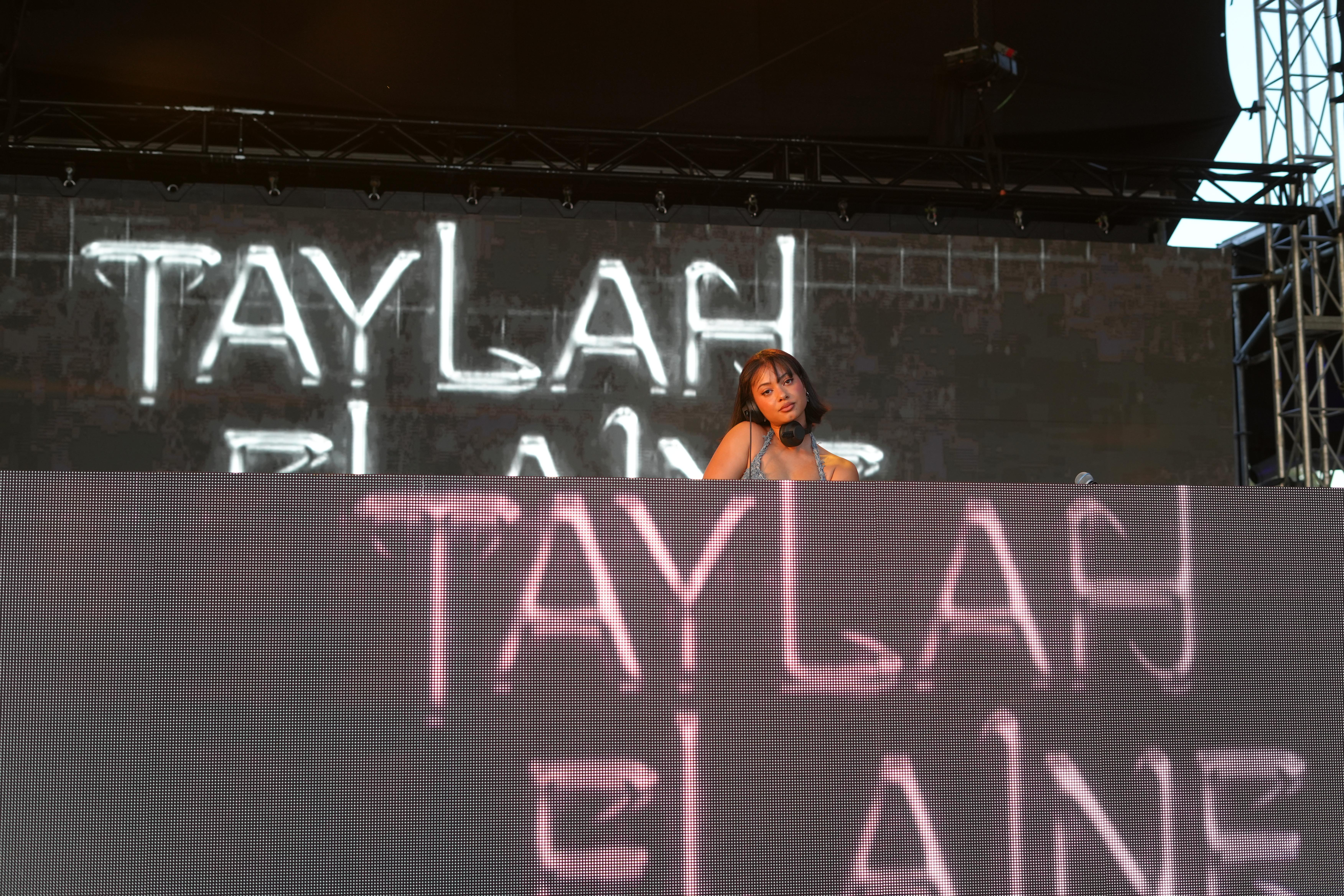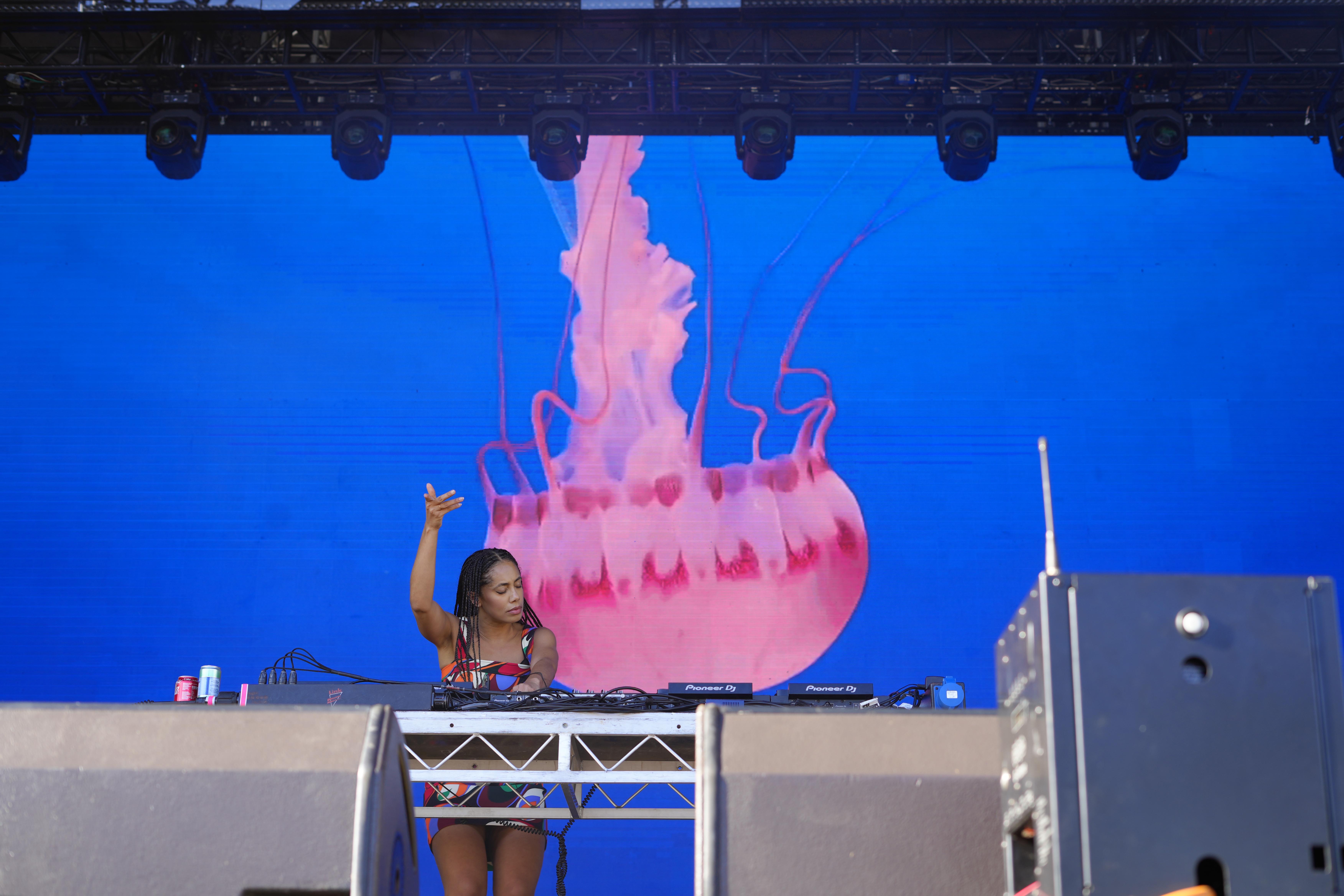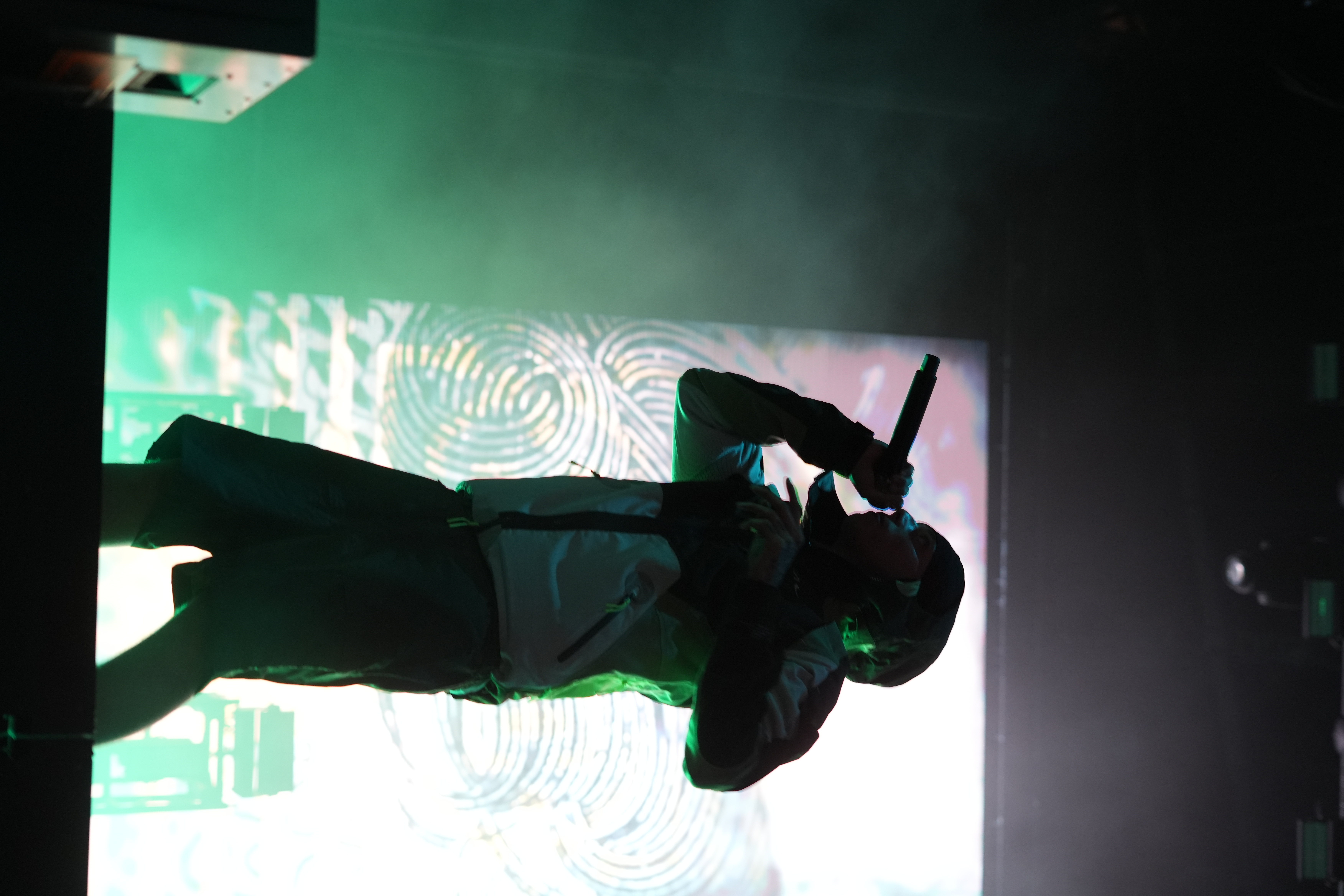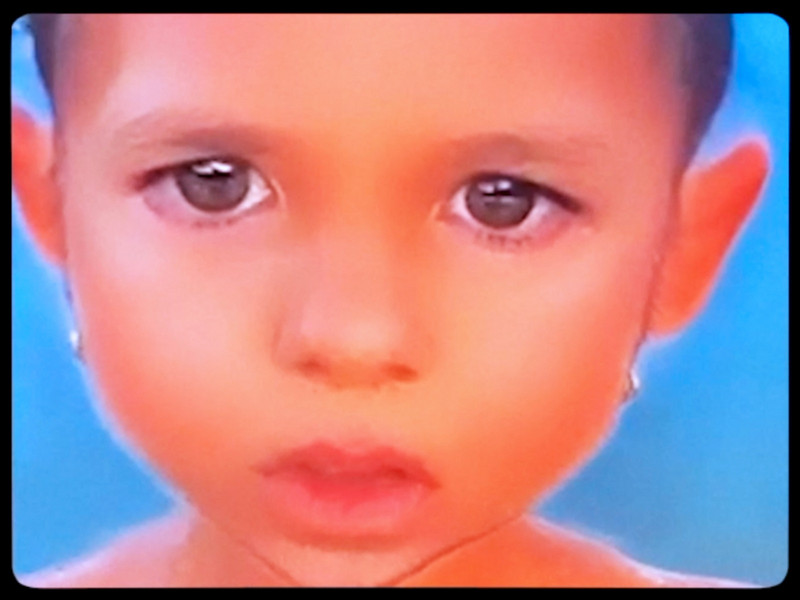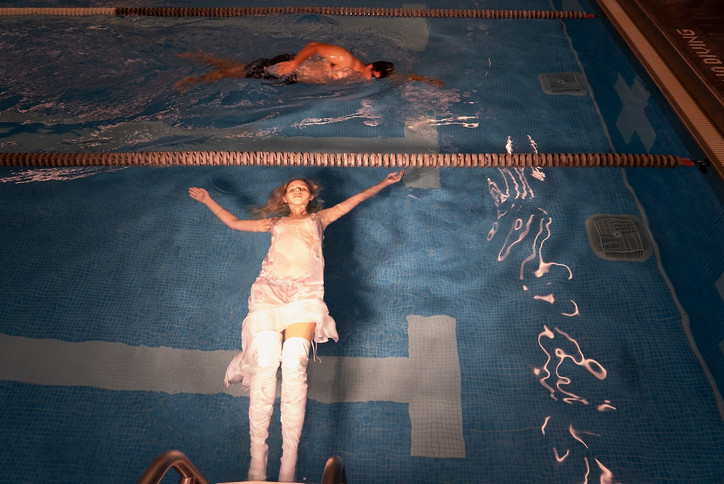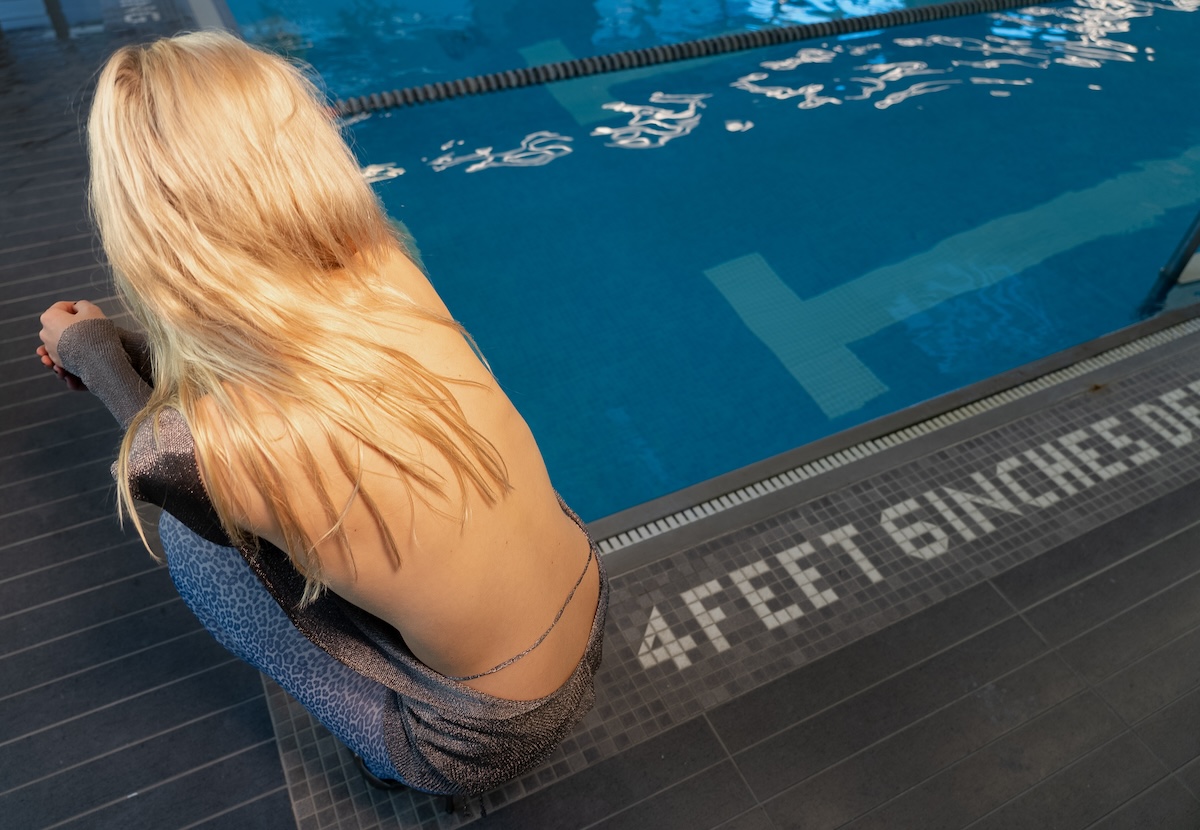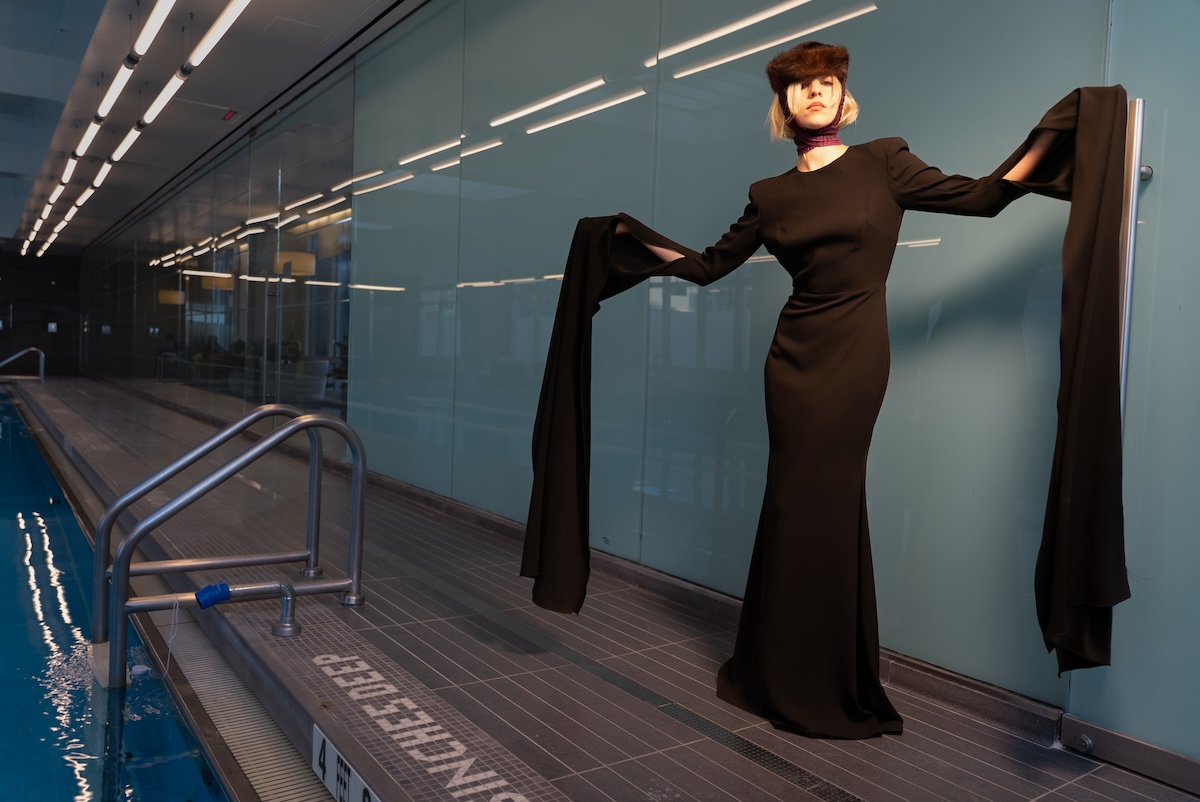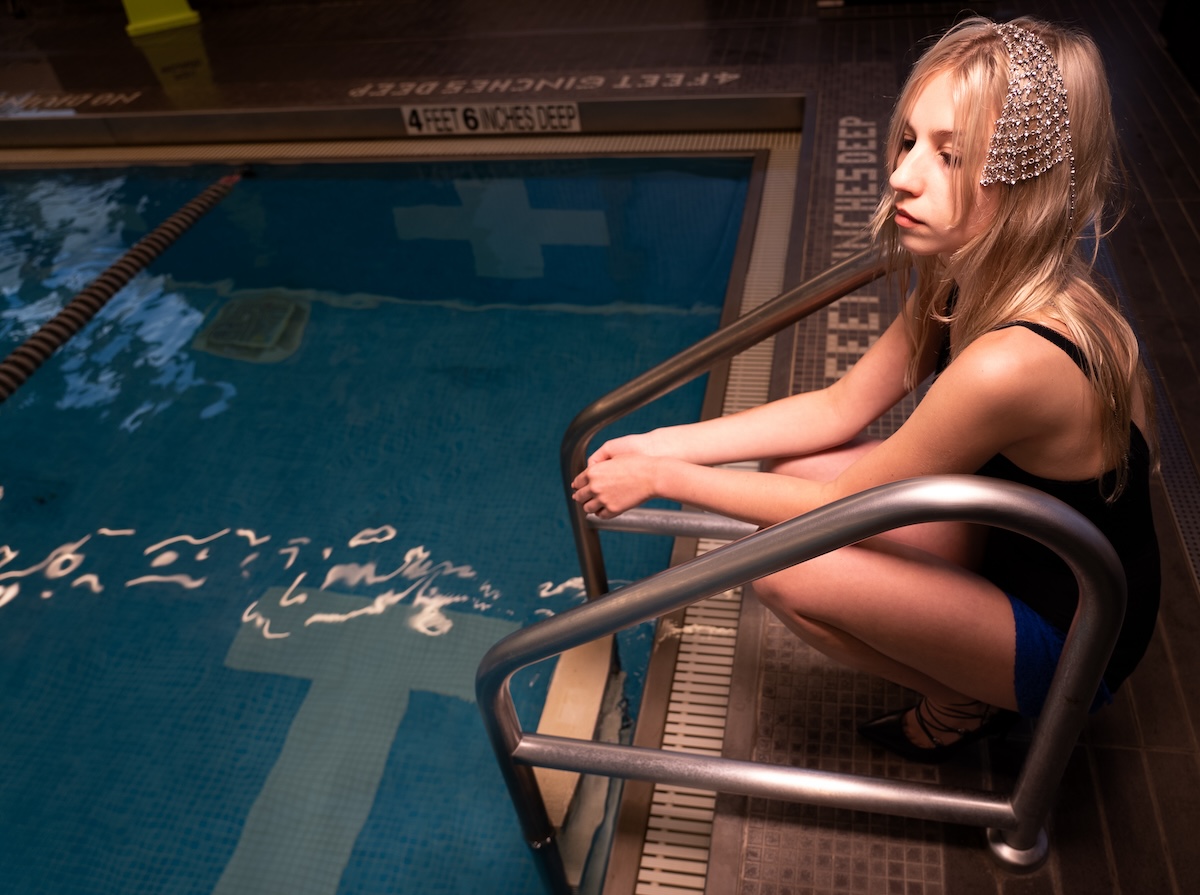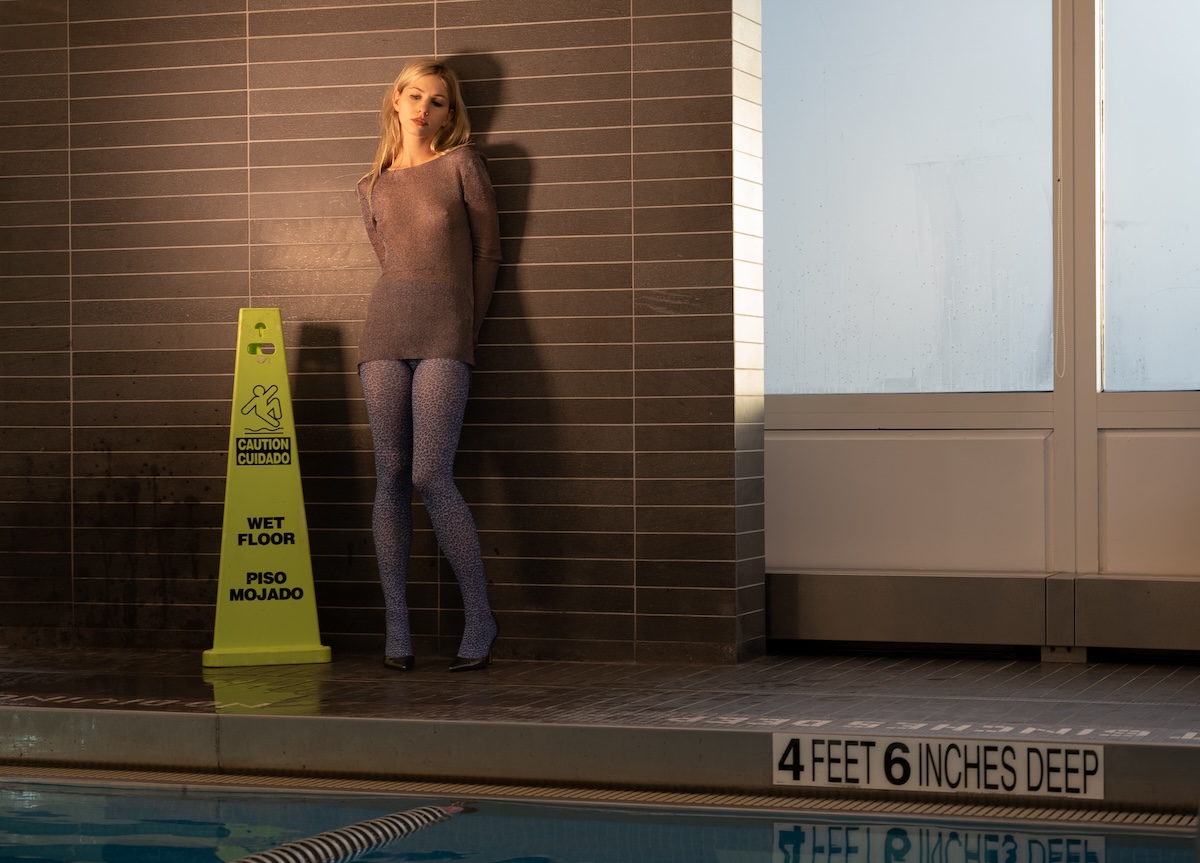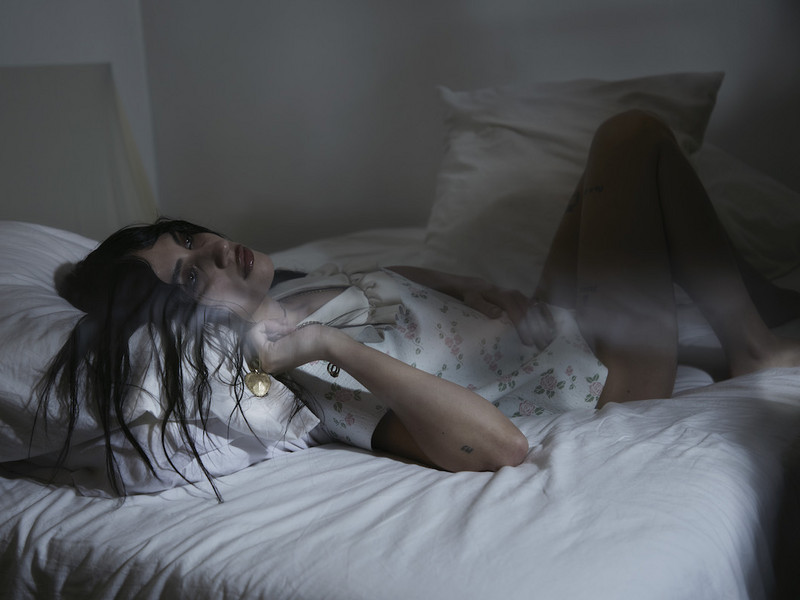People seem to be calling you Patti Smith left and right, do you work with a similar approach?
It depends. If I’m searching for something I’ll go through old notebooks and try to rediscover a passage or a line which may have been forgotten. But it can be really difficult to turn a poem into a song because many of them do not translate well. Songs have a certain beat and come with pacings, sometimes that means that you have to tear the poem apart or move things around. It’s a good exercise. Another practice I’ve been trying out lately is blackout poems, and, coming back to what we talked about earlier with things being slightly retro, I’m using our New York Times subscription to do it, so real physical paper. My grandmother got the daily print prenumeration for us, but we had to change to the weekends-only, the stacks of paper in here was getting crazy.
I bring the paper whenever I go to the studio, and I mean, there’s so much going on in the world right now, so there’s a lot going on in the paper as well. I’ve just been taking different parts of the pages and enjoy seeing what comes out of it. It’s been cool. Of course I try to do the crossword puzzles, but I’m like, Fuck this. In general though, just trying out different approaches with whatever you’ve got infront of you. I start out every morning with this new book of mine, the Book of Symbols. It’s got a big hand on its cover page, and it’s filled with everything from bones to different animals and various materials — everything has symbolism. I light a candle and act all witchy, put my hand on the cover and whatever symbol the book opens on I write a poem about.
There is so much you can write about at this age and in our time. To keep trying these various intentional exercises is a good way for me to keep going creatively, but also to learn how to address issues from another angle. Usually, people write about what’s happening, whether that be relationships, trauma, the world, etc, but I believe there is a way to still talk about these matters without having to mention them; it does not have to be so on the nose. Painters, for example, are really good at this. They emote certain feelings without portraying the exact thing, it's more beautiful, and powerful, that way, at least in my belief. It opens up for interpretations. You brought up Patti Smith, I think much of her work — or PJ Harvey’s, she one of my personal favorites — has a lot of curiosity in it. They seem eager to learn about new things, approaching art as an ever ongoing journey. I think it’s dangerous, even if you happen to be an expert at whatever profession you’re pursuing, once you start perceiving yourself as such. Then you get too comfortable, and it's seldom that great art comes from what's too familiar.
Tell us something unfamiliar, then.
I used to be a dancer, and so I went to the ballet yesterday, and you know what? It got me so freaking emotional. I teared up over this one dancer who was doing such a beautiful pirouette. I was like, Oh my god, I'm one of those people now, crying in the theater. Somehow it really got me. I guess I’m just amazed by that kind of person, those kinds of people — who work so hard to get somewhere and then you see them experience that connection with their art and it's just like… It’s so sweet that it’s almost beyond.
I don’t know. Maybe this is just a symptom of me having been sick. I’ve been on my phone too much.
Feels like one of those New York gifts.
Definitely.
I should try it out. In Paris you could get the nose-bleed seats for 12 bucks. If you were initially a dancer how did you end up behind the mic though, and at what point did [Don] Lawrence enter the picture?
Funny you mentioned him, I saw him as late as today. Singing was something I snuck in to. Nobody knew I was singing — I was secretly doing karaoke in my bedroom — until I performed with the jazz band at school. I sang a Nina Simone song and my parents were in the audience like, What the fuck have you been hiding?
And so I did a few coffeeshops and what not, but it wasn’t until I worked with Don that I realized my voice’s full potential. I no longer feared its force and didn’t make me uncomfortable hearing my own voice on recordings. He’s definitely been a key player.
I then had my band for a while where I really leaned into that borderline rock girl singer. I went full on for it, my hair was all long and there was a slightly different aesthetic going on. It was fun but I’m scaling back now — I just cut my hair and I’m rediscovering other parts of my voice again. I feel like it doesn’t have to be so loud anymore, my focus now is rather on picking and choosing what makes sense together.
Sounds like you’ve matured via your reflections since your last release, are you stepping into a new genre? Am I even allowed to call it that? I've heard that 'everything within one has been done already.'
I mean, there's definitely an identifiable genre within my album or the music that I've put out. I think it's a difficult question because we have so much access to so much music today, and I feel like most people listen to a range of different types of music, and so naturally people have more of a nuance to what they are making. But then again there are overlaps, I wouldn’t call anything genre-less.
It’s interesting that you brought up access as I read about it just yesterday, and wrote it down to talk about with you. The article argues that 'art has been democratized, but with it so has creativity.' How do you feel about everybody having a platform — has that affected your practice at all?
I almost felt like that was what I was doing with my band. Once I put out the album, I was trying really hard to create an artistic identity — to show off not only who I am as an artist but as a 'persona' if you like.
I actually think it made me feel more separate and at a distance from who I am creatively — that's also why I've spent some time reflecting. Even though it's fun to dress up and explore different avenues — I mean it’s great to do that, too — at the same time I do think it can go too far too quickly and suddenly you realize that you’ve ended up in a space where you’ve lost the point of what you’re doing, asking yourself, Why am I wearing this or why am I performing like that?
